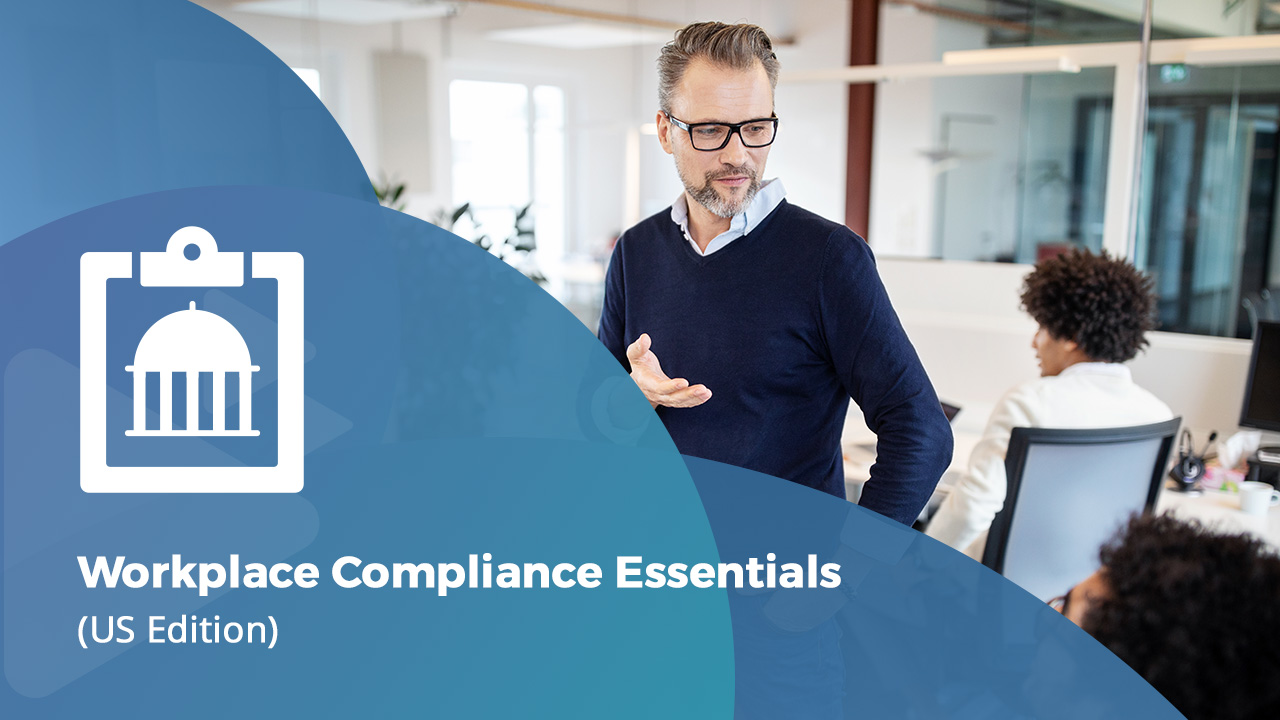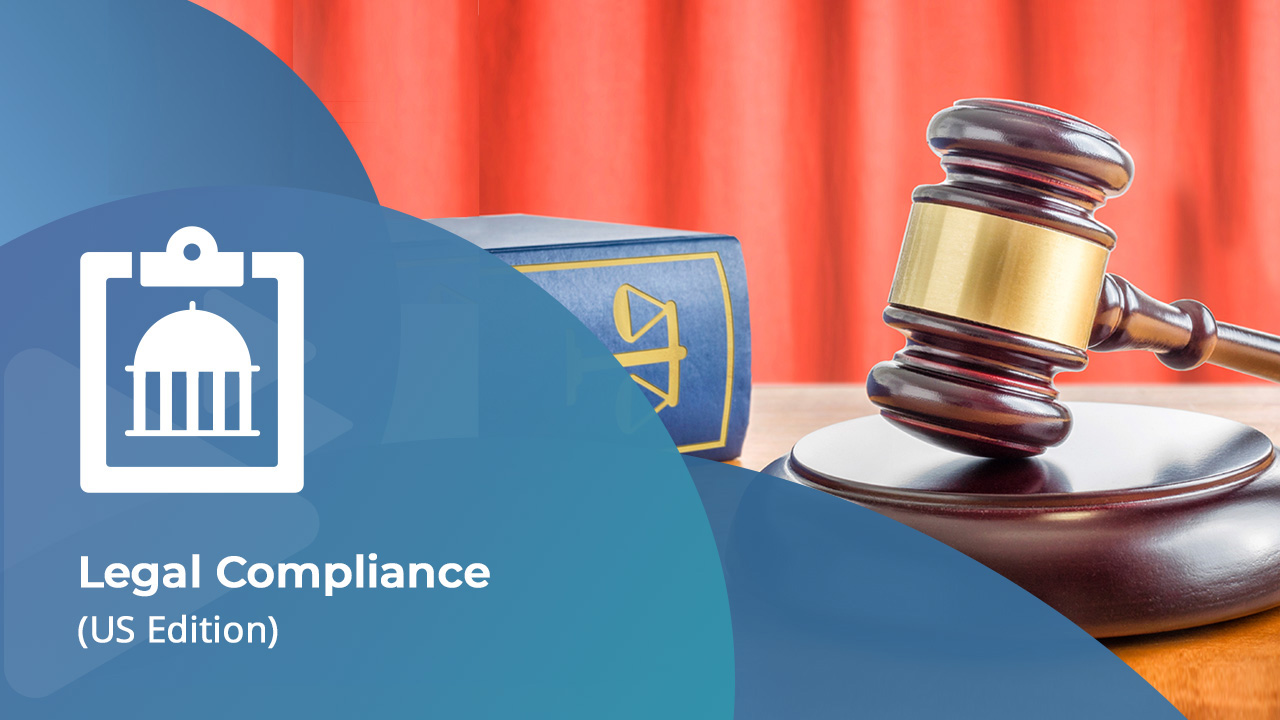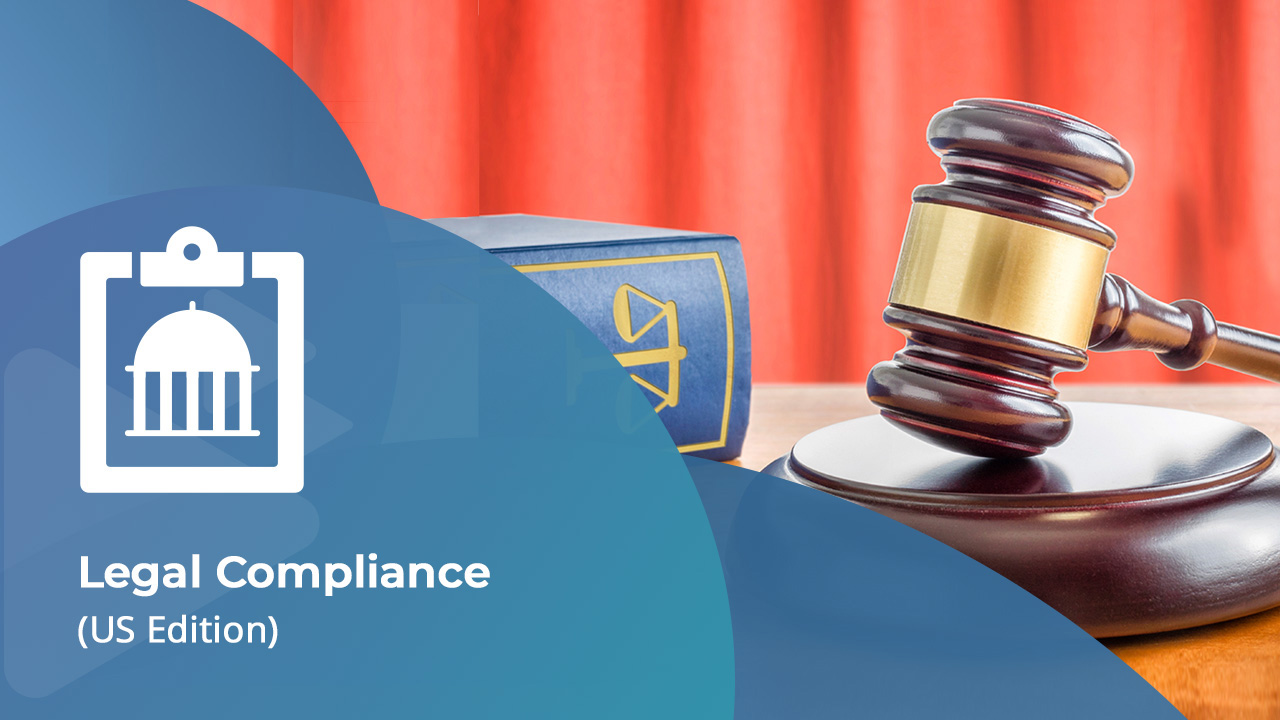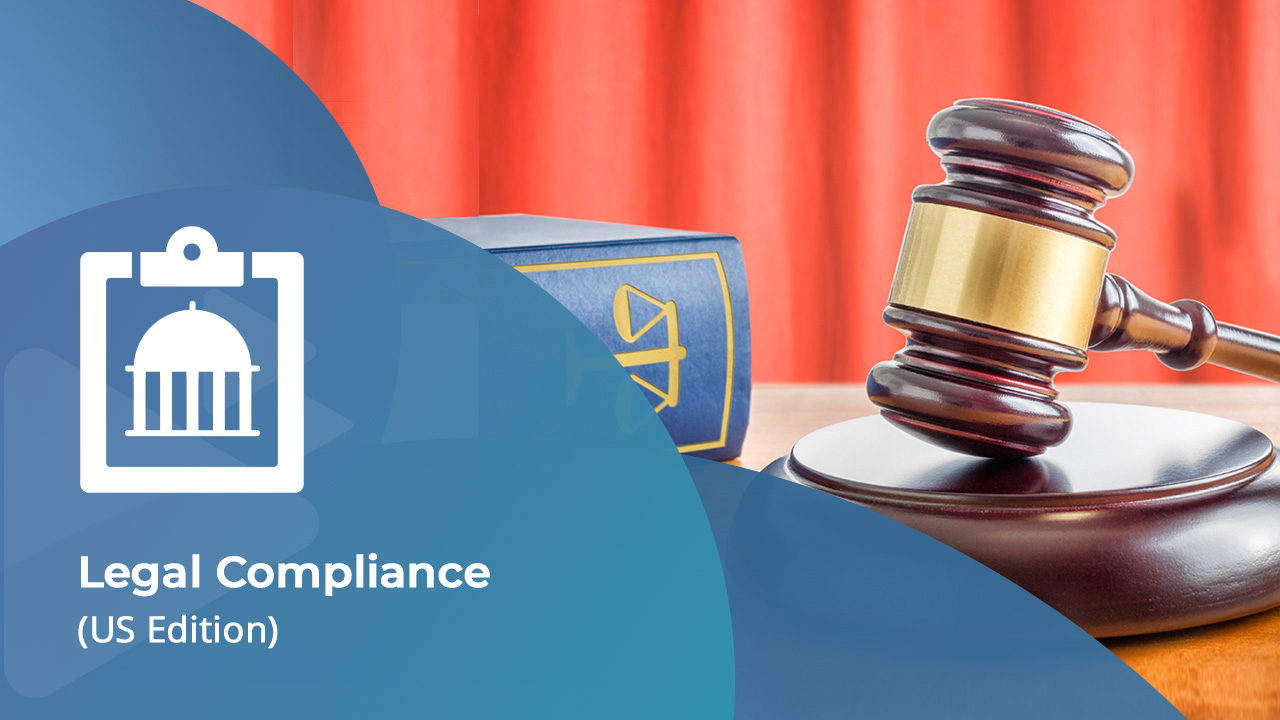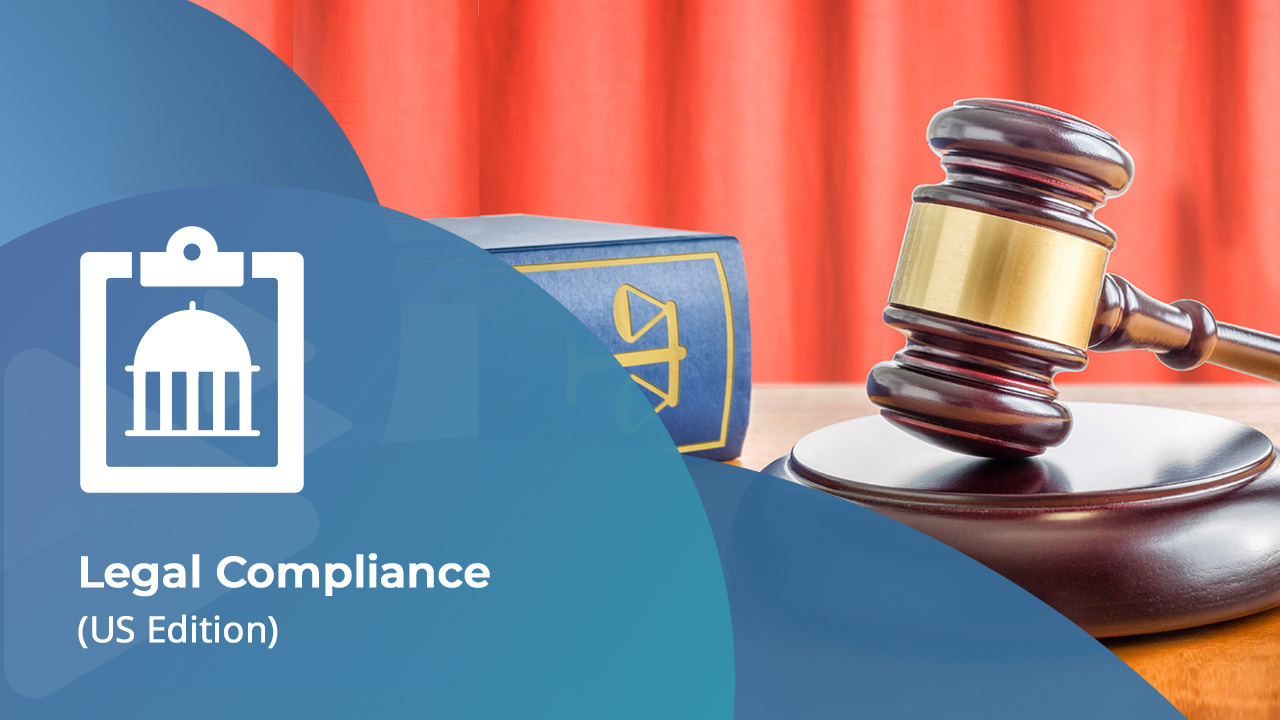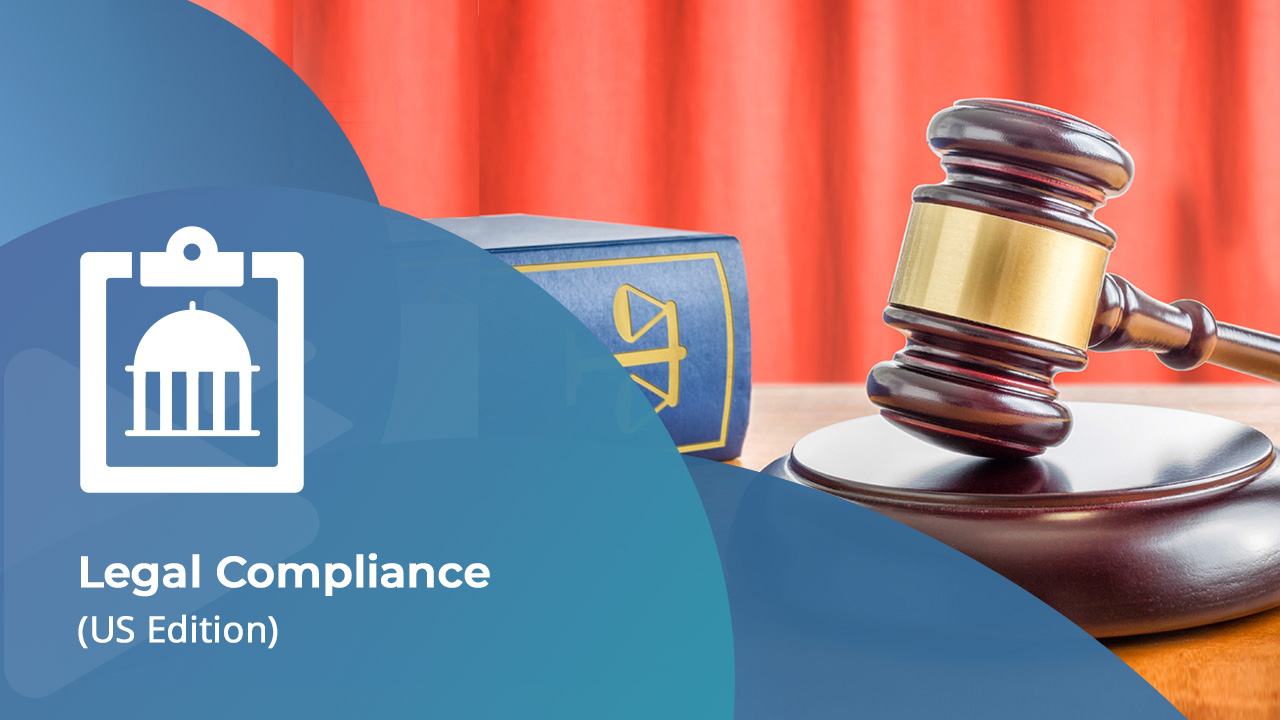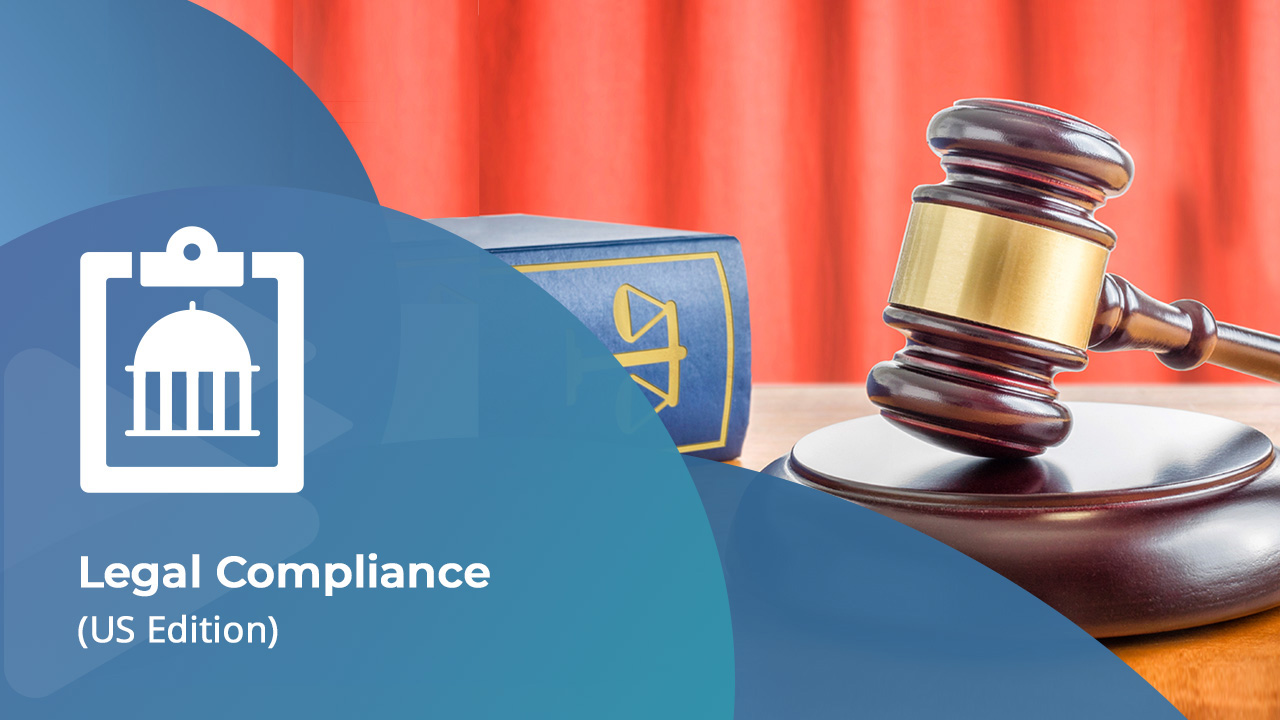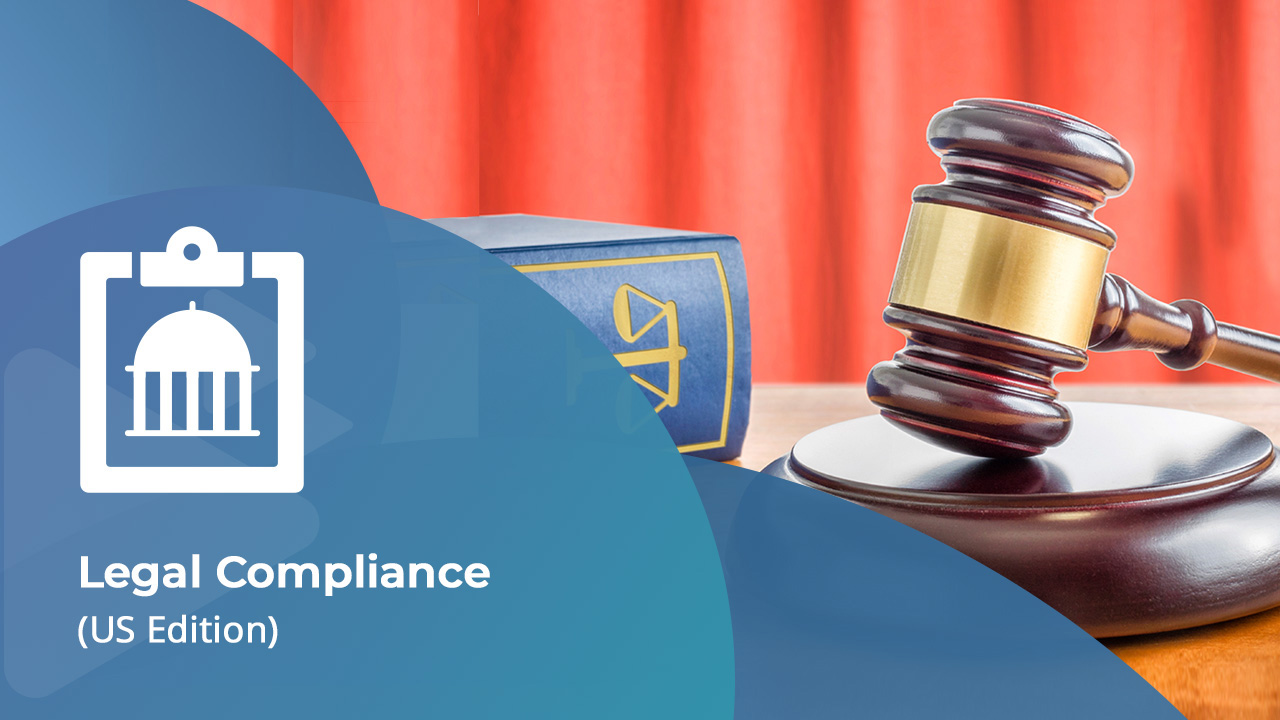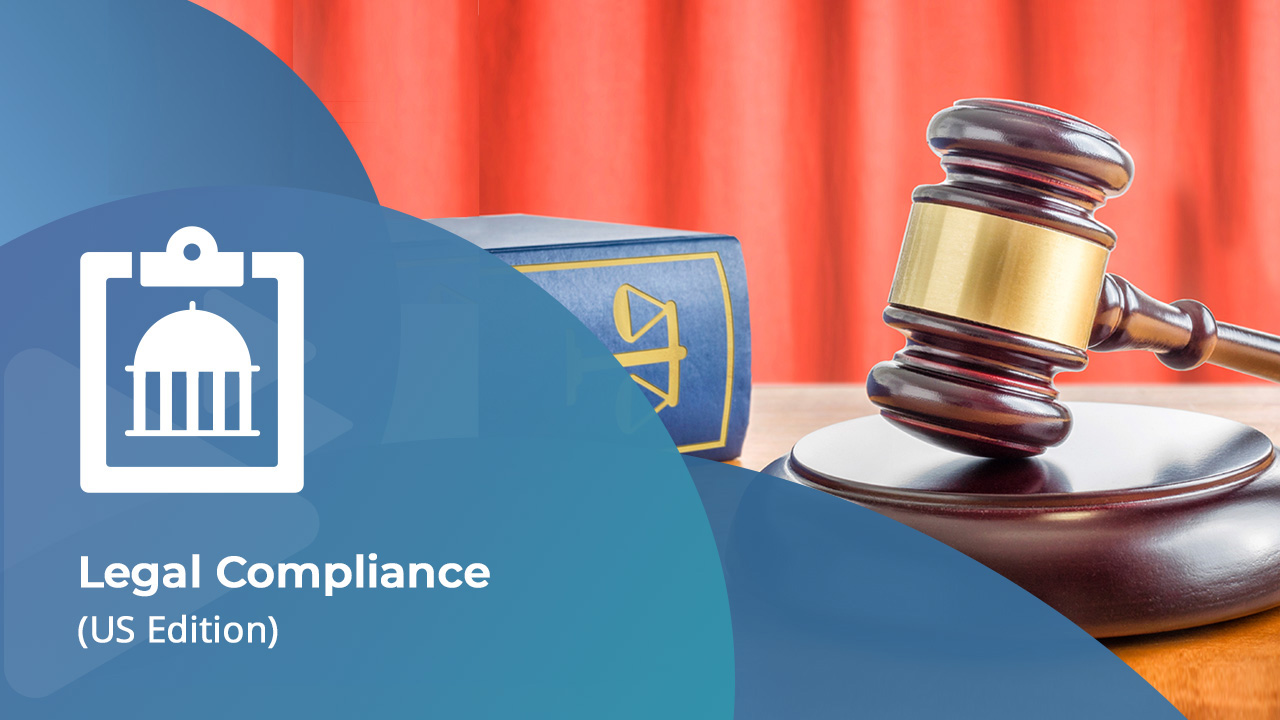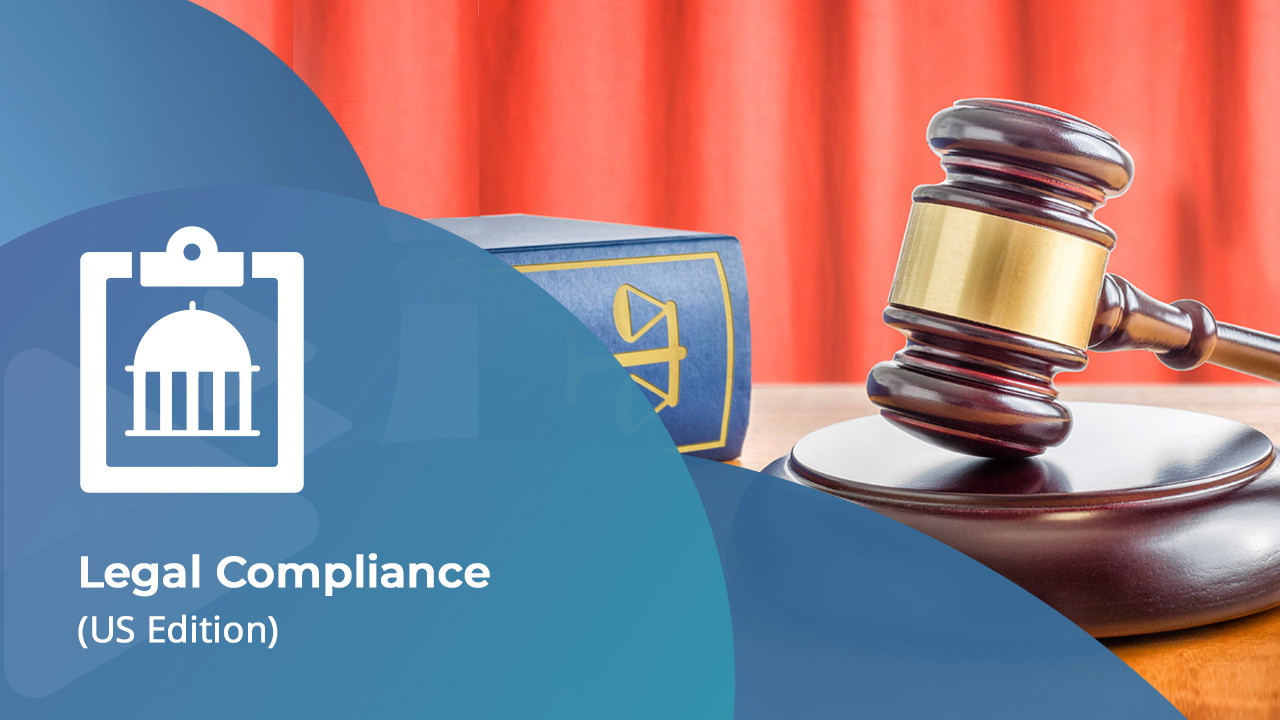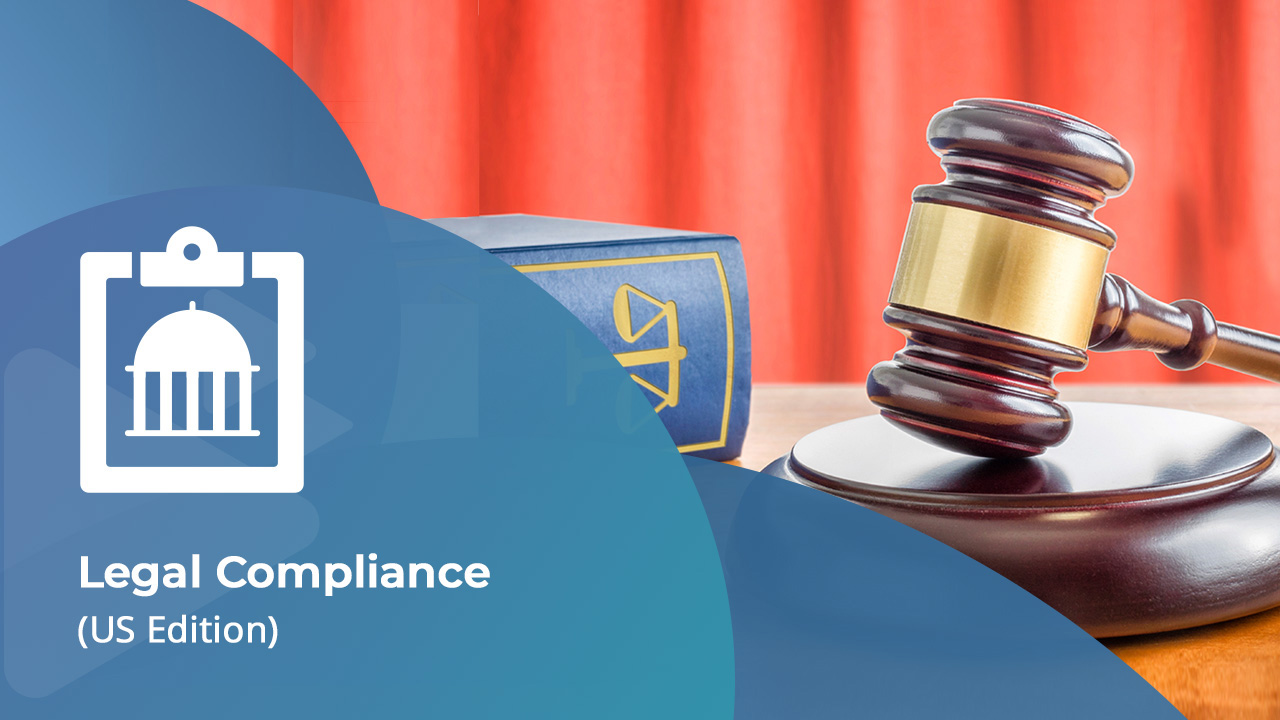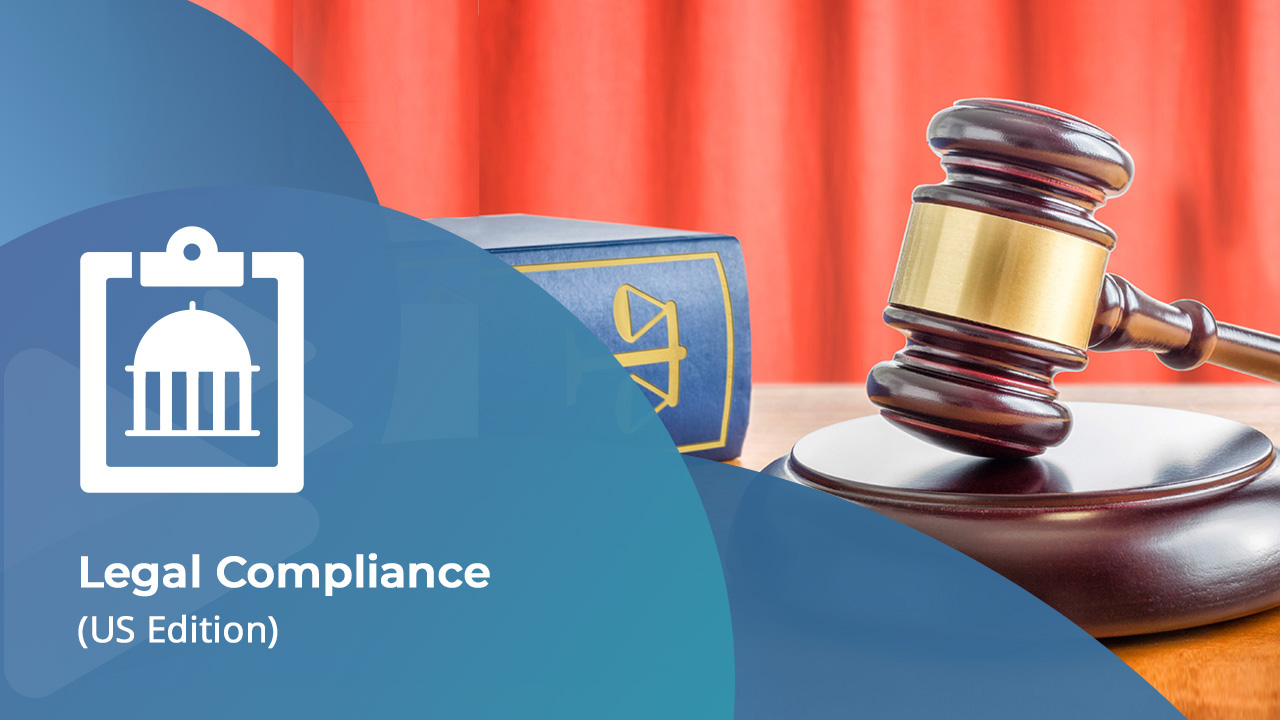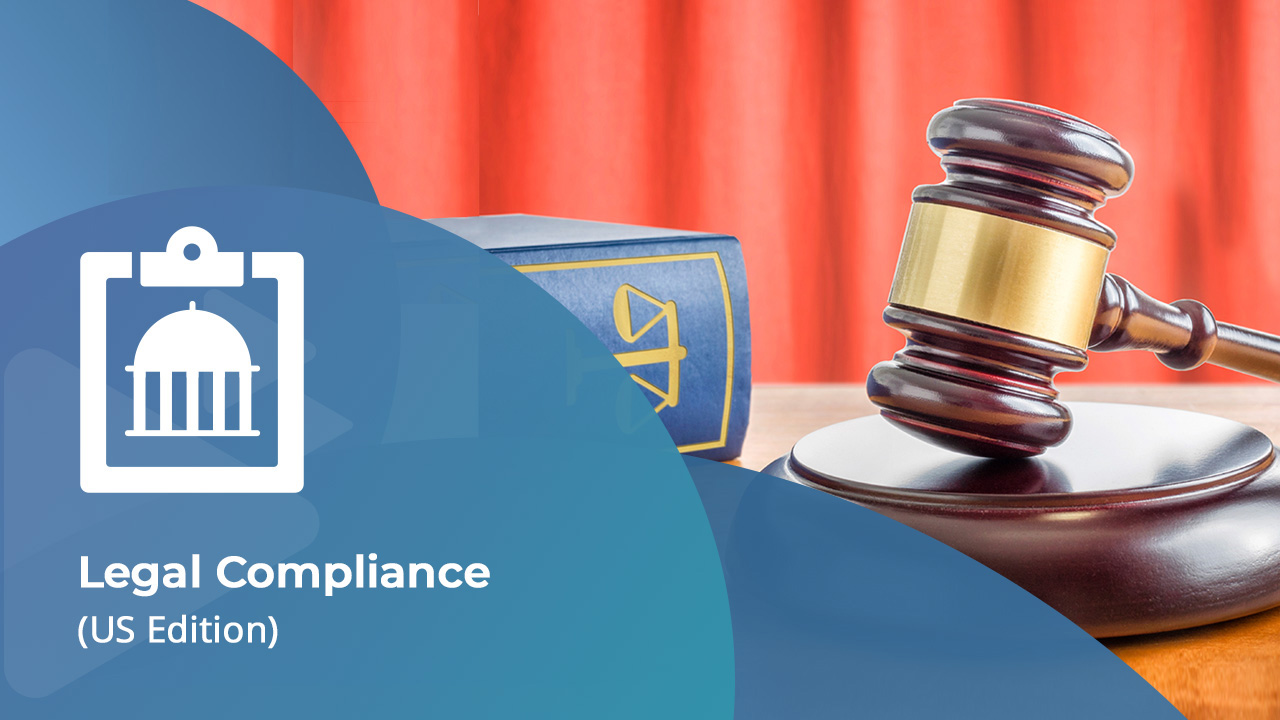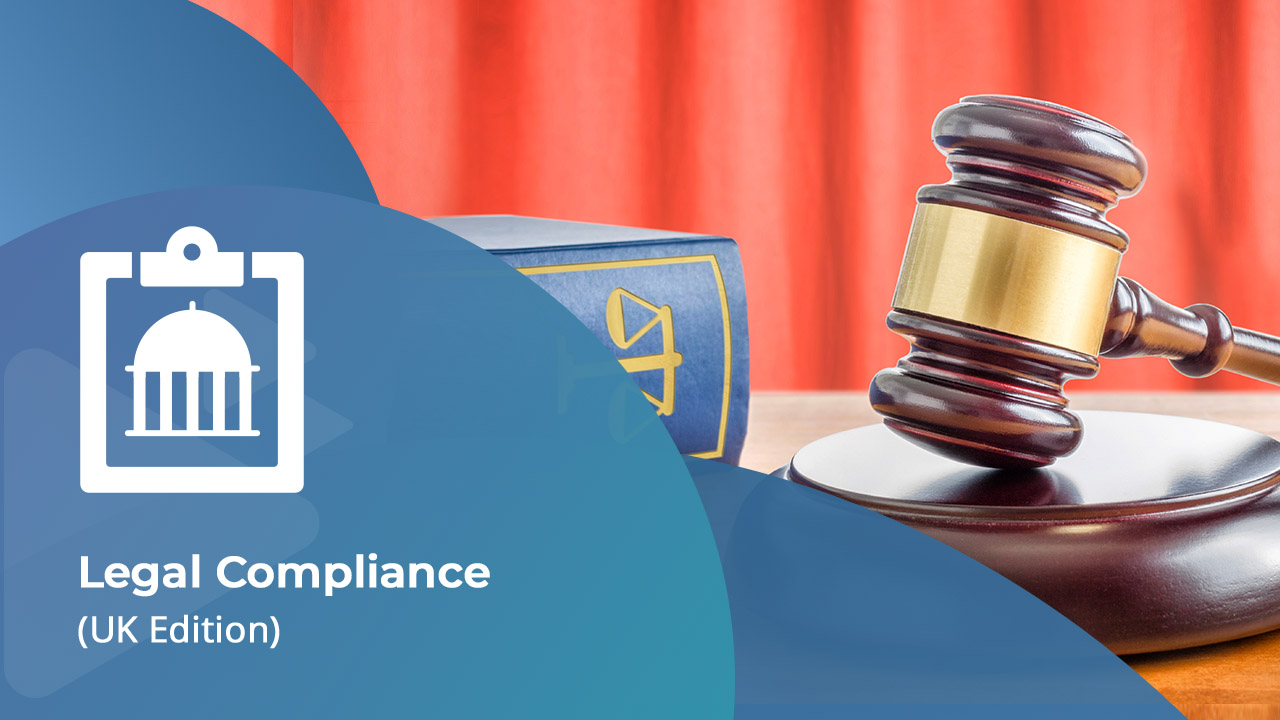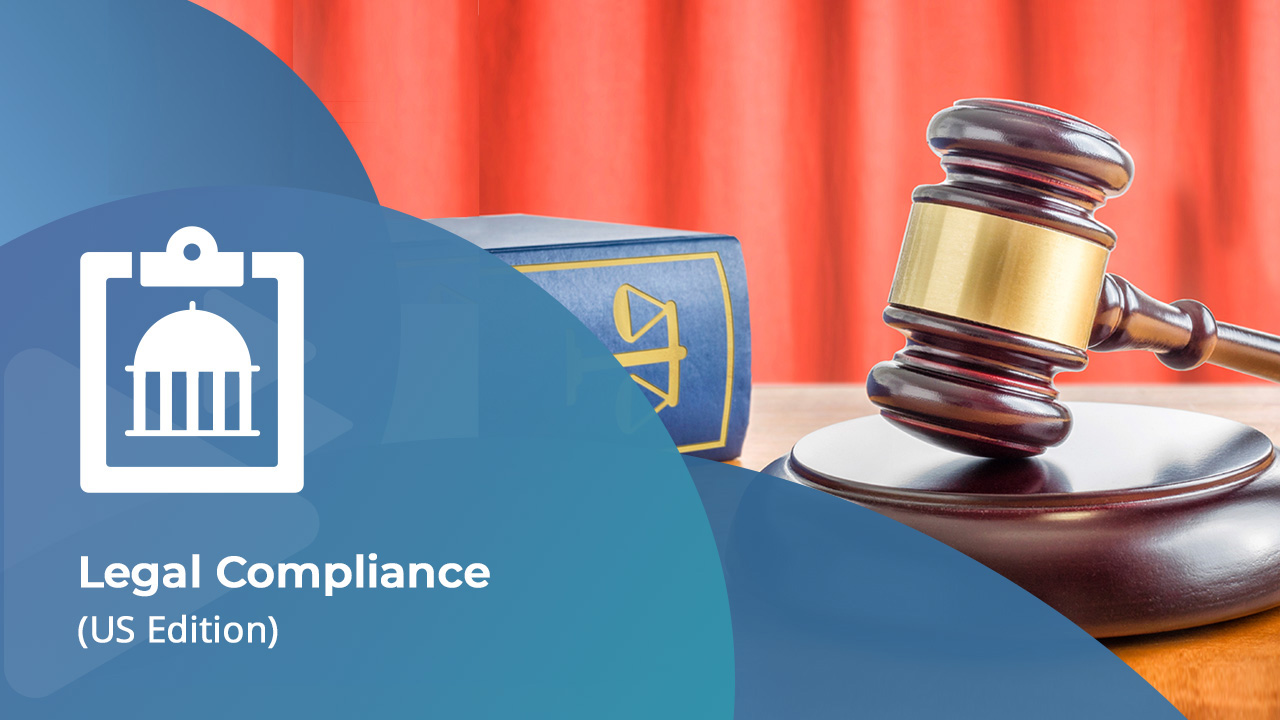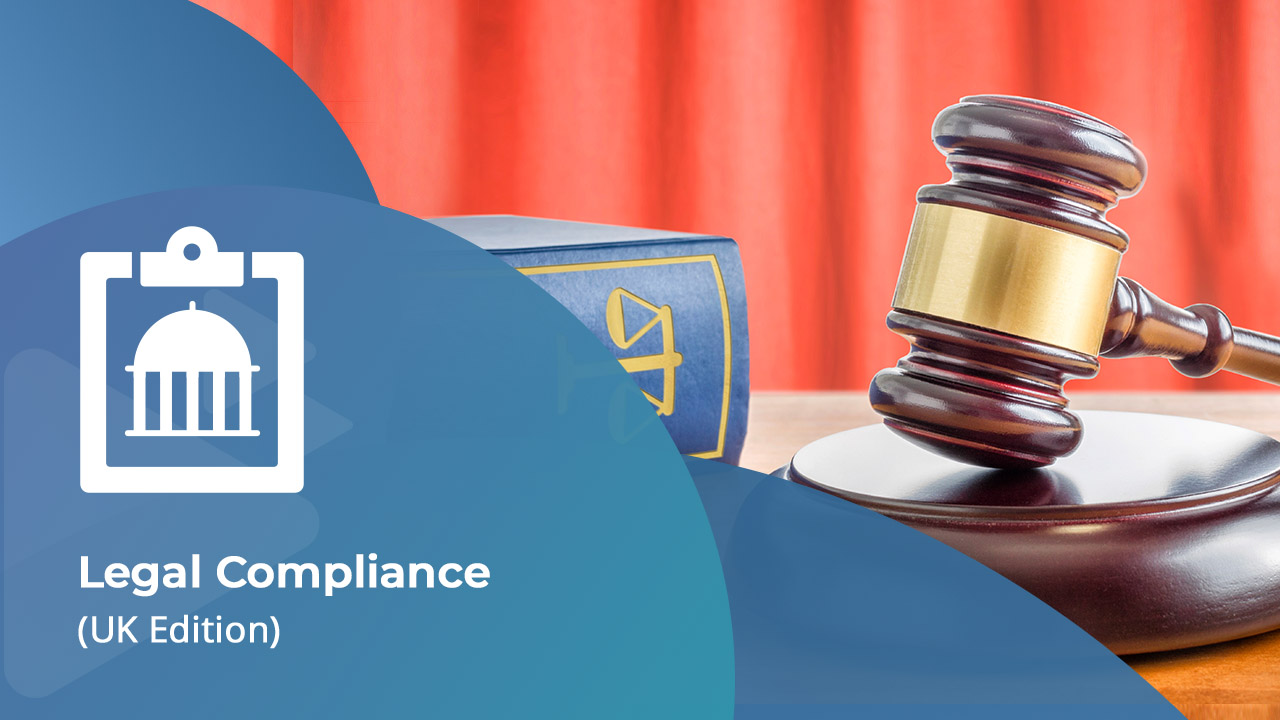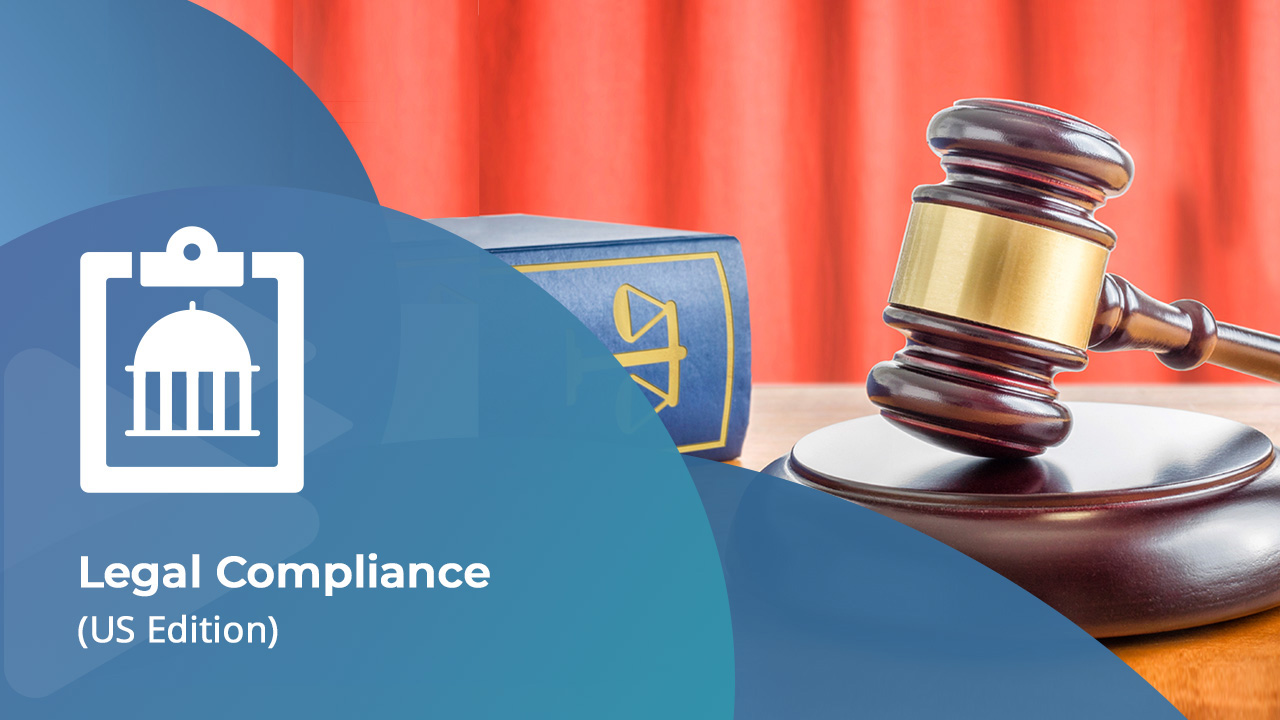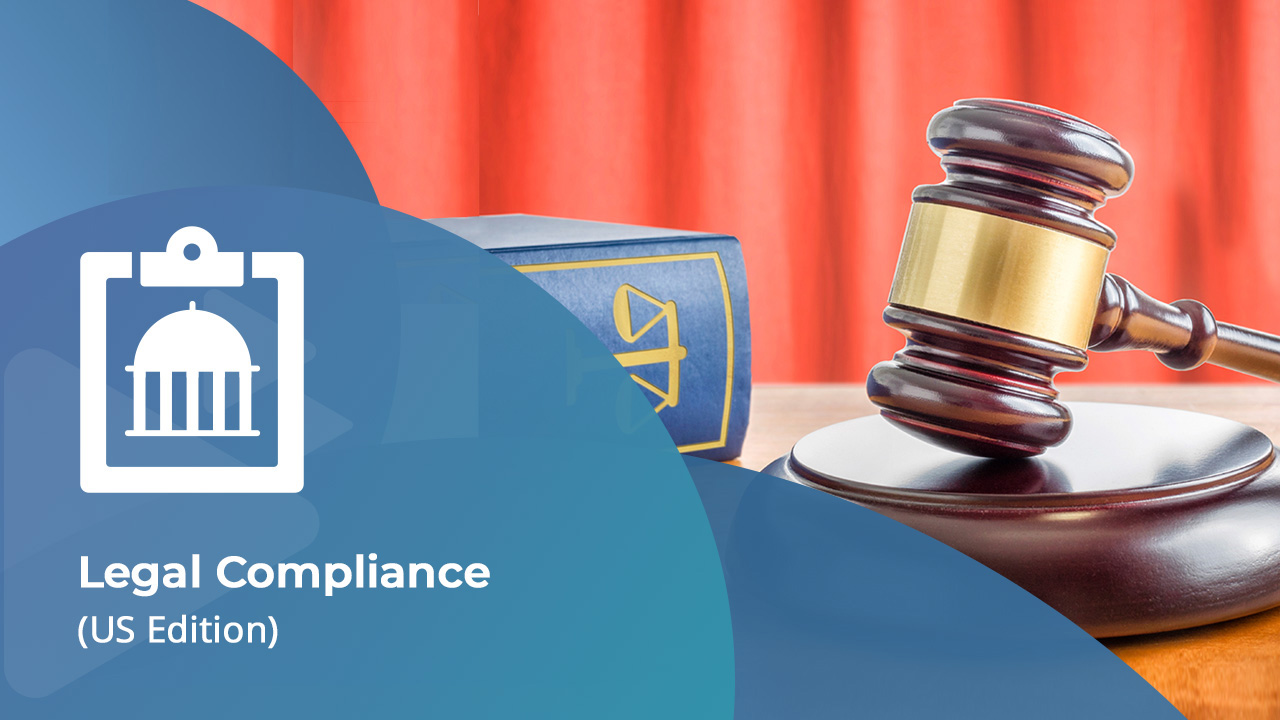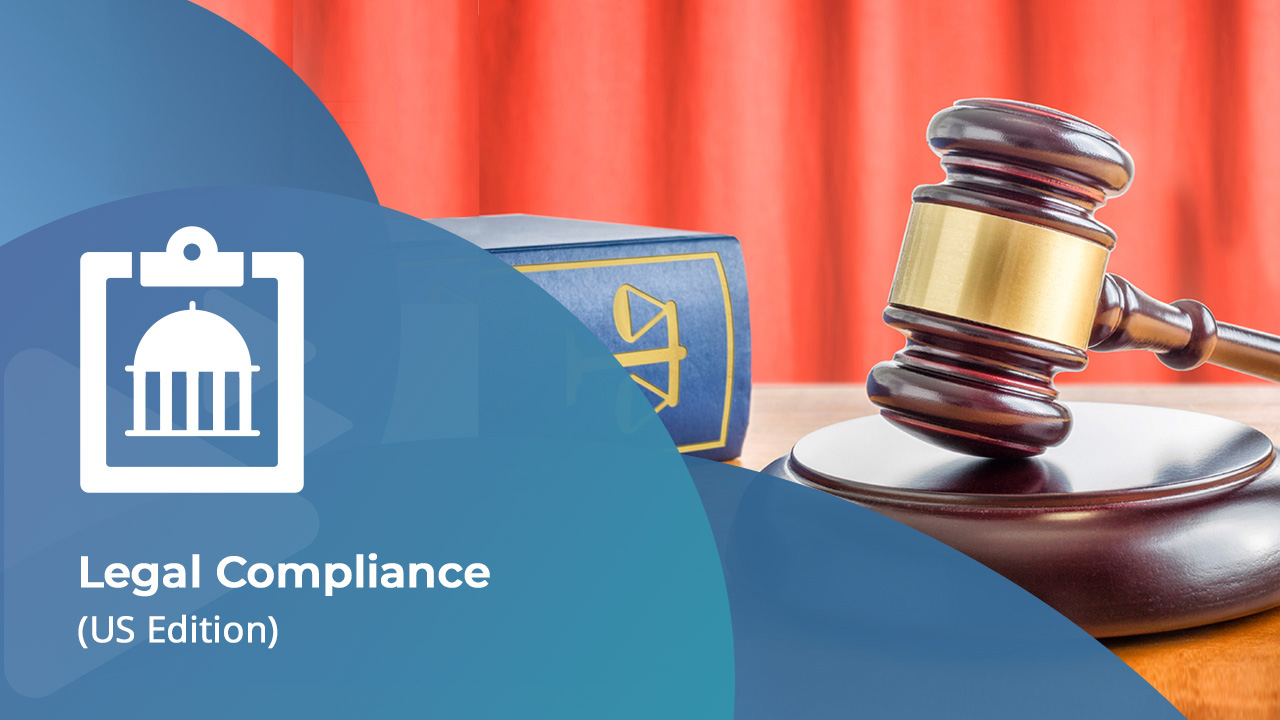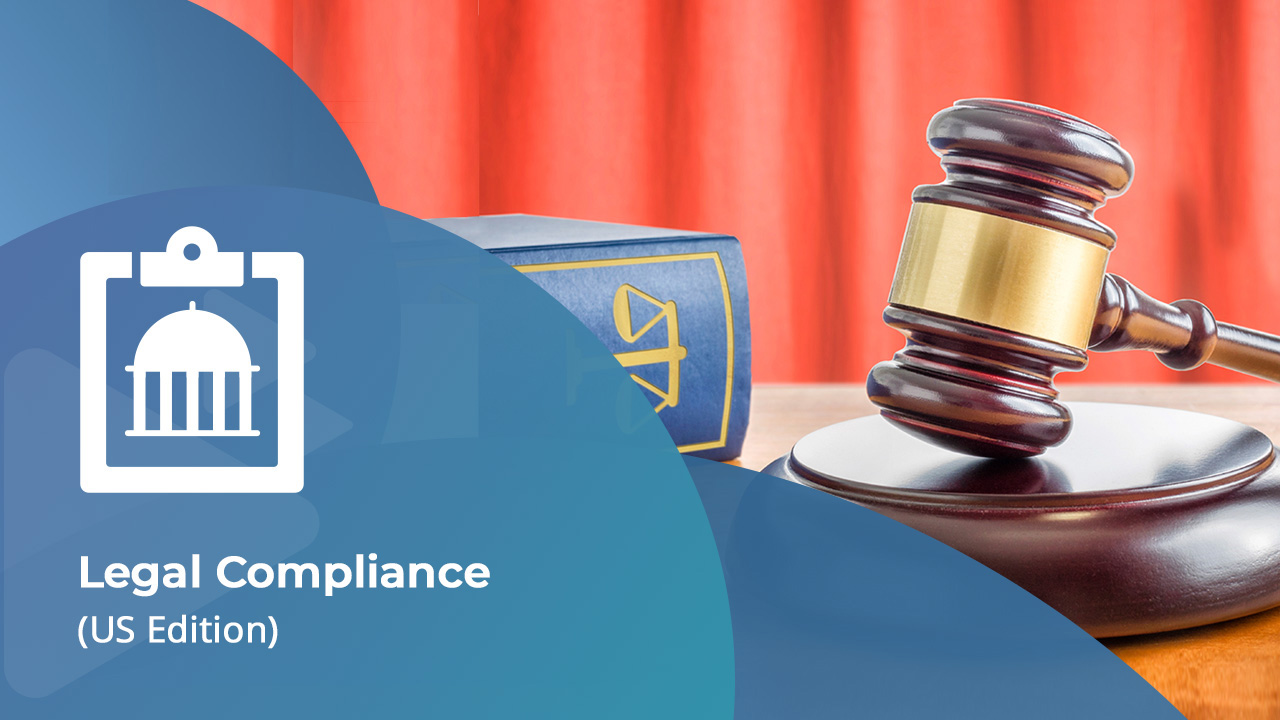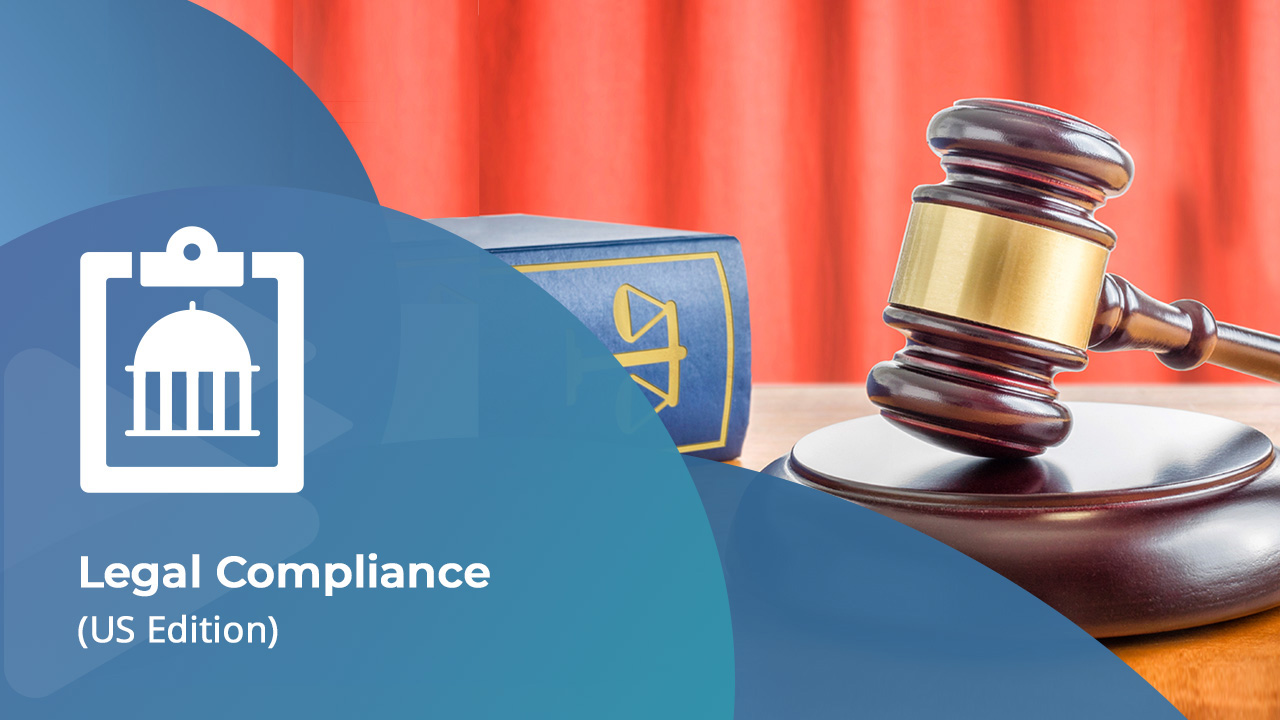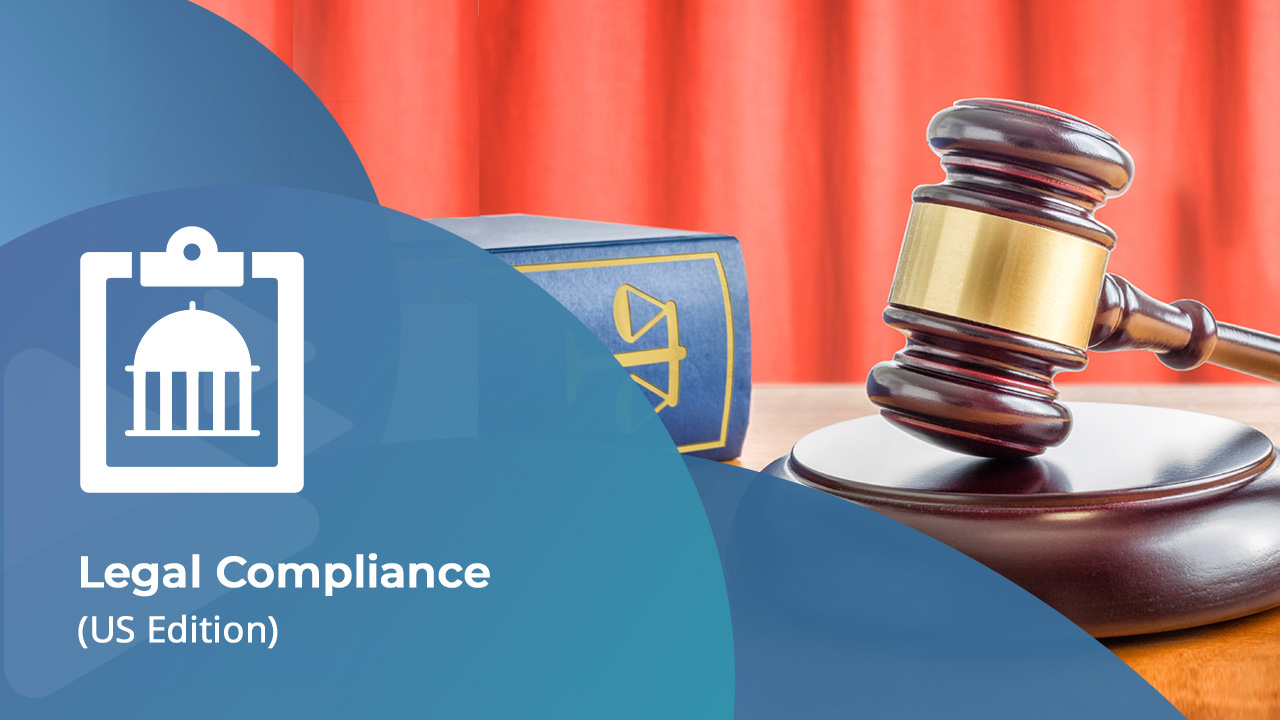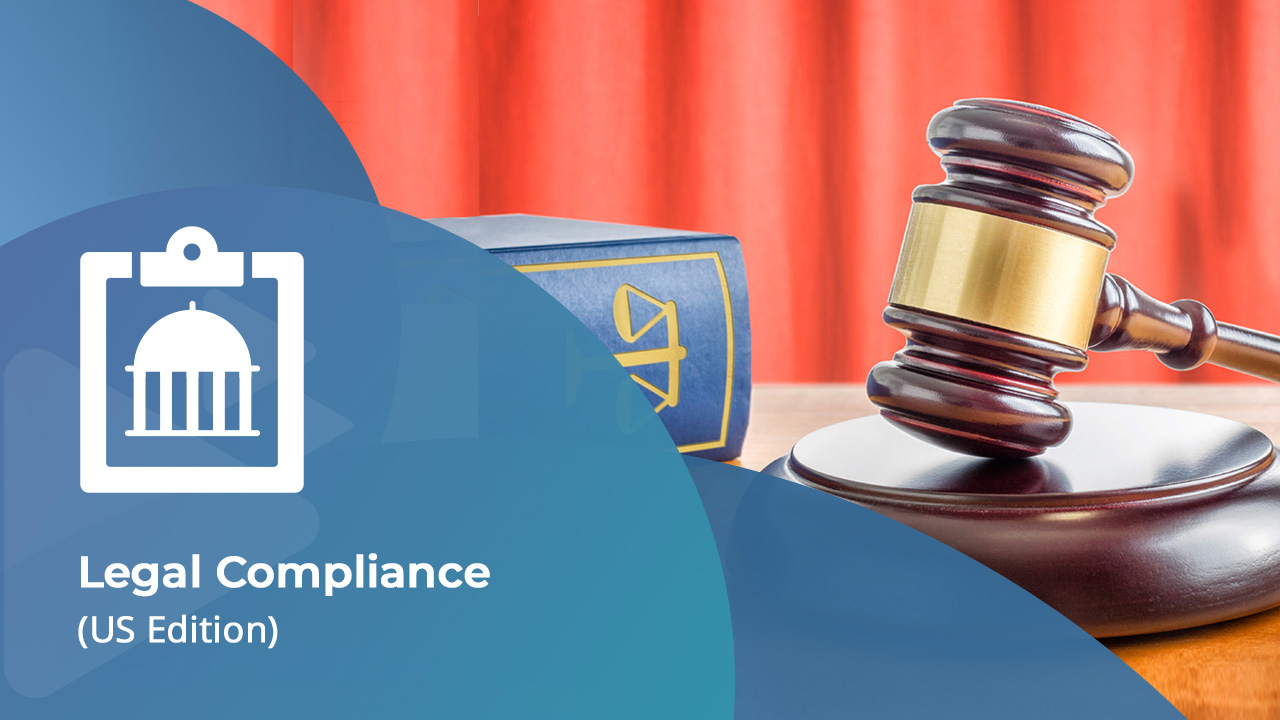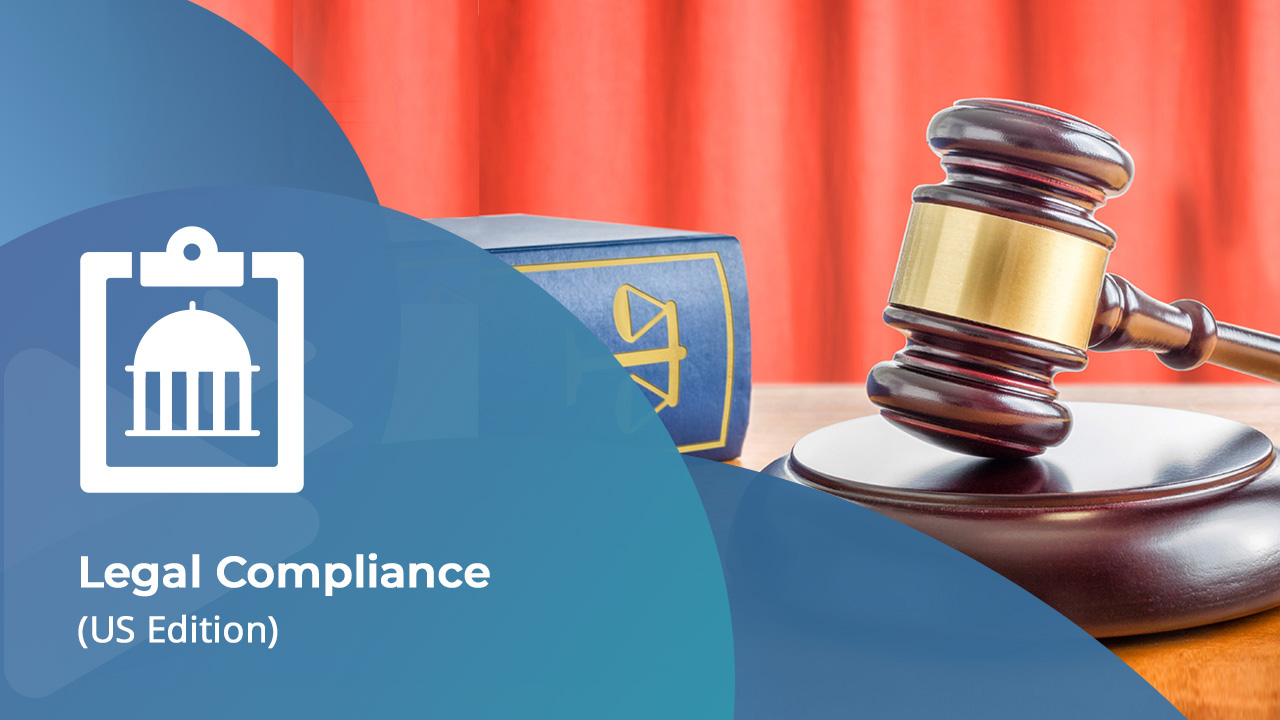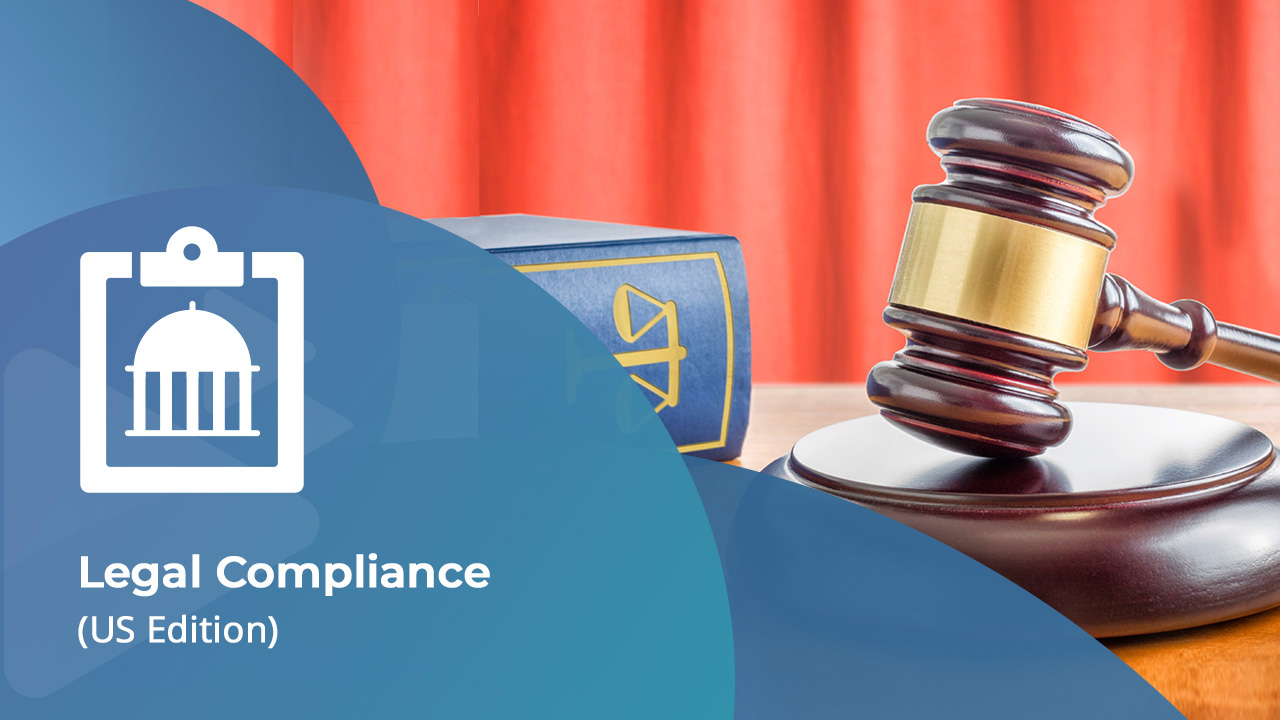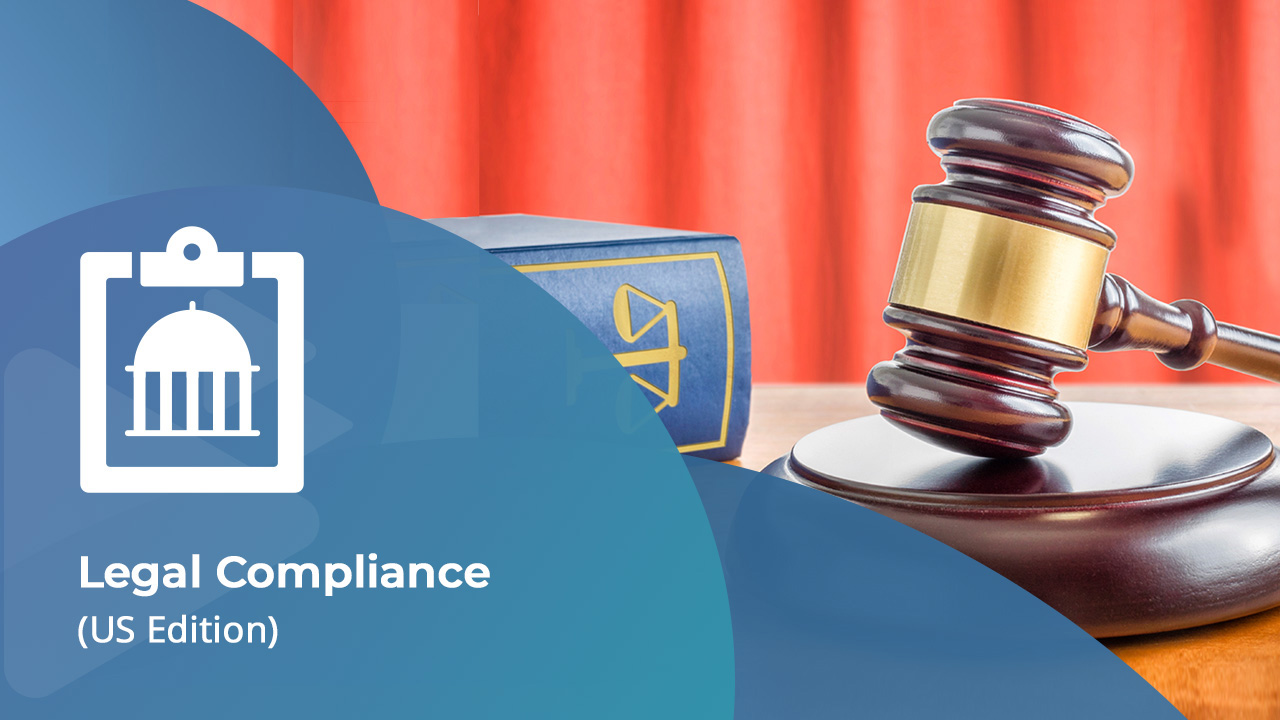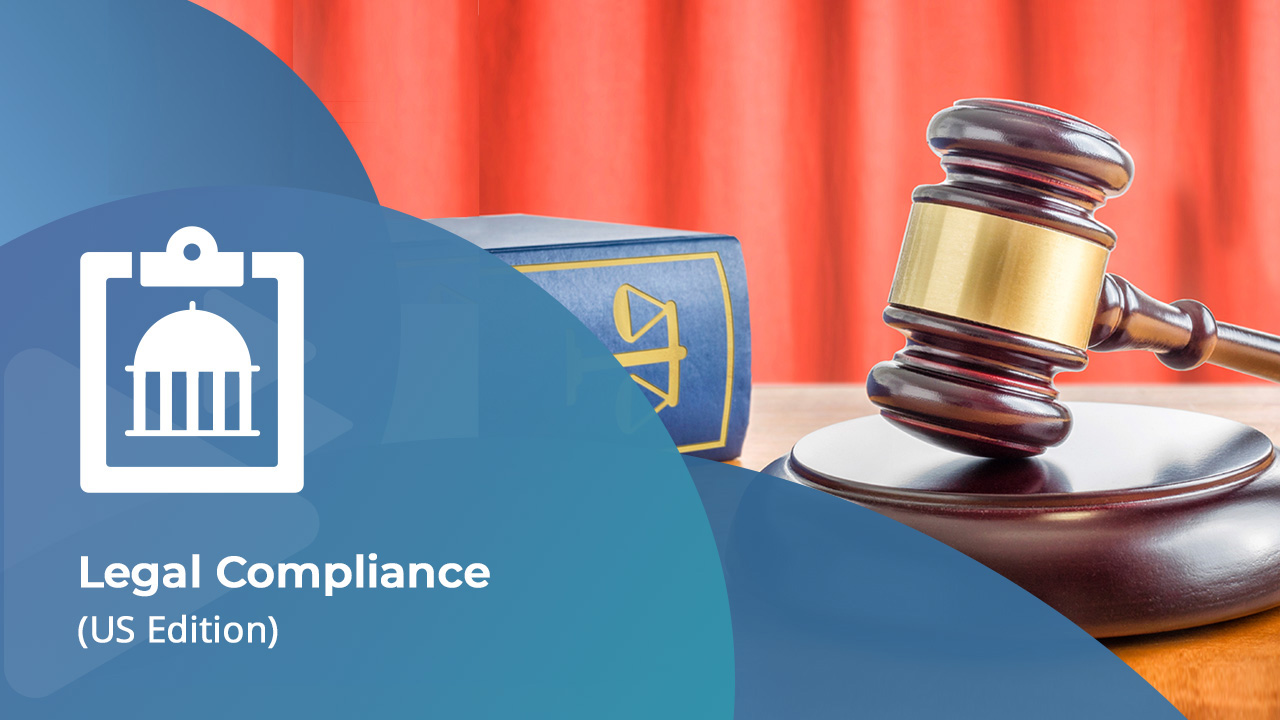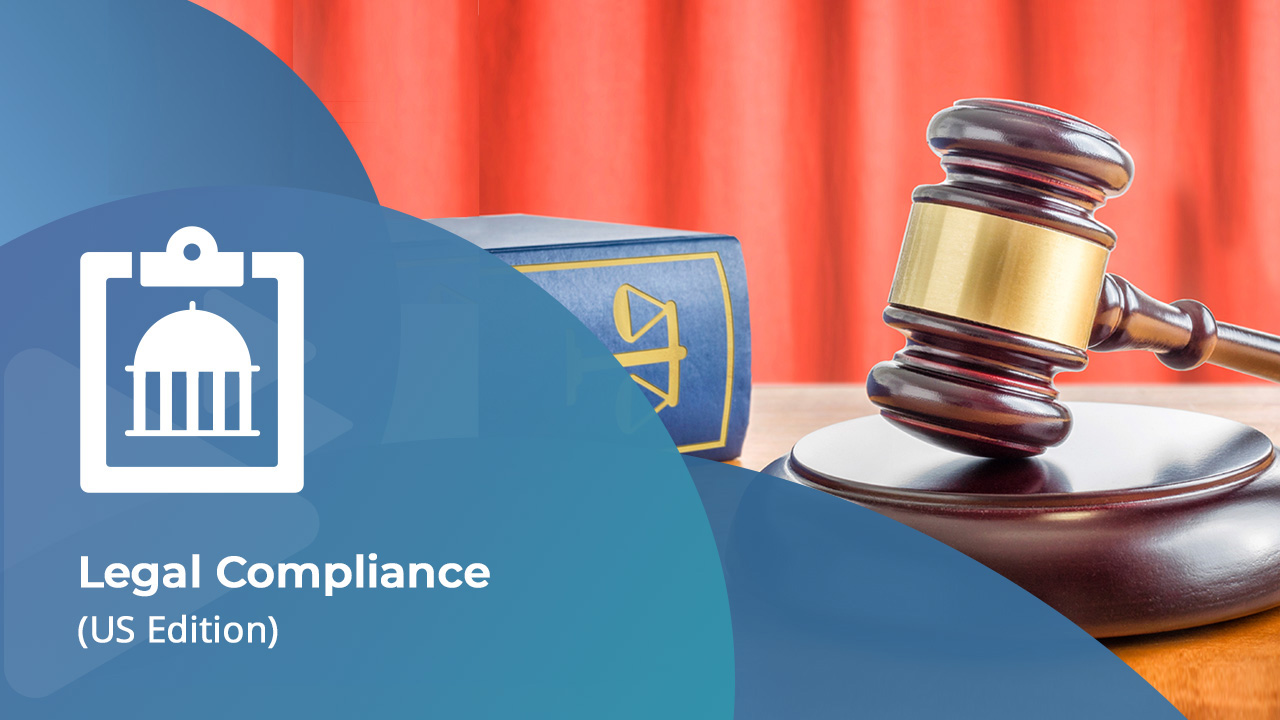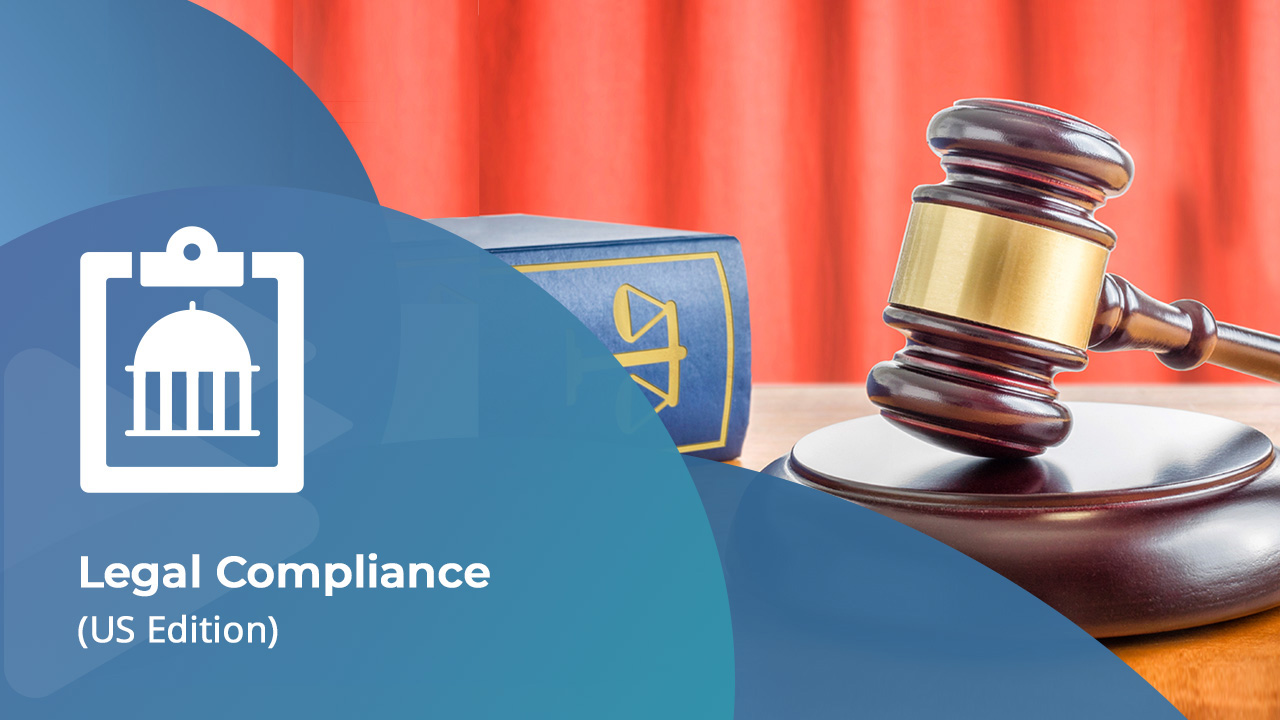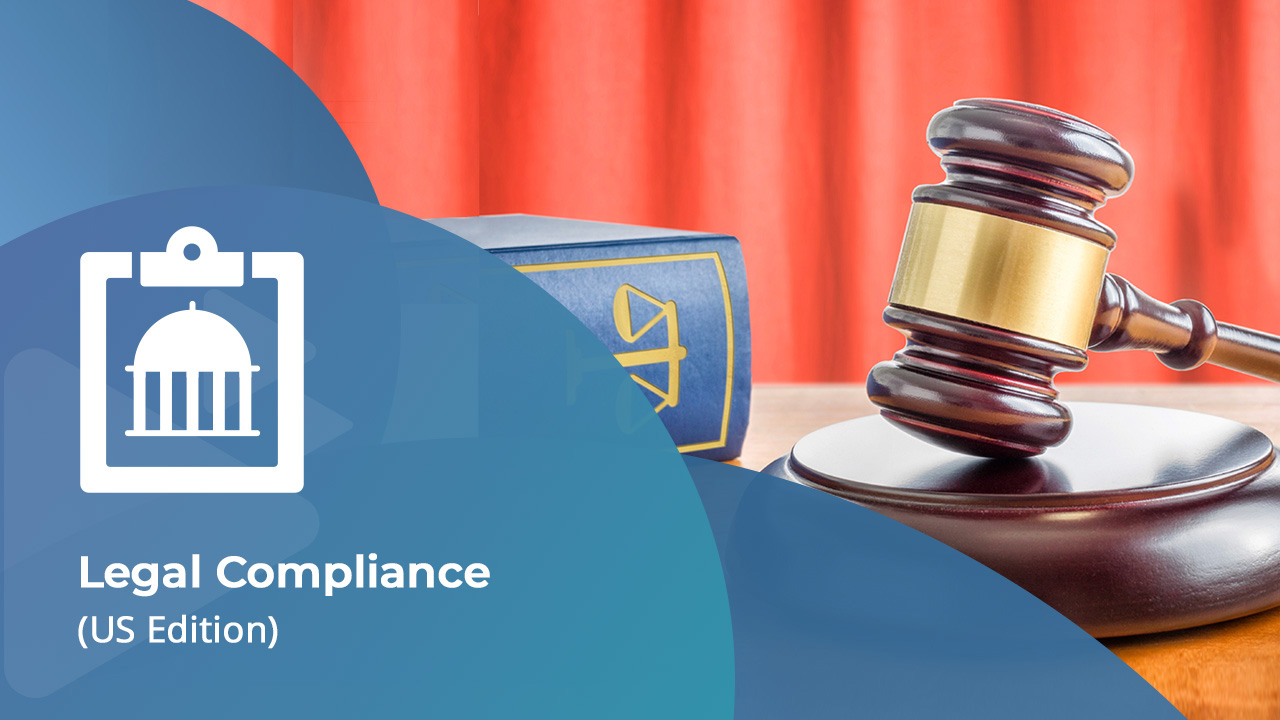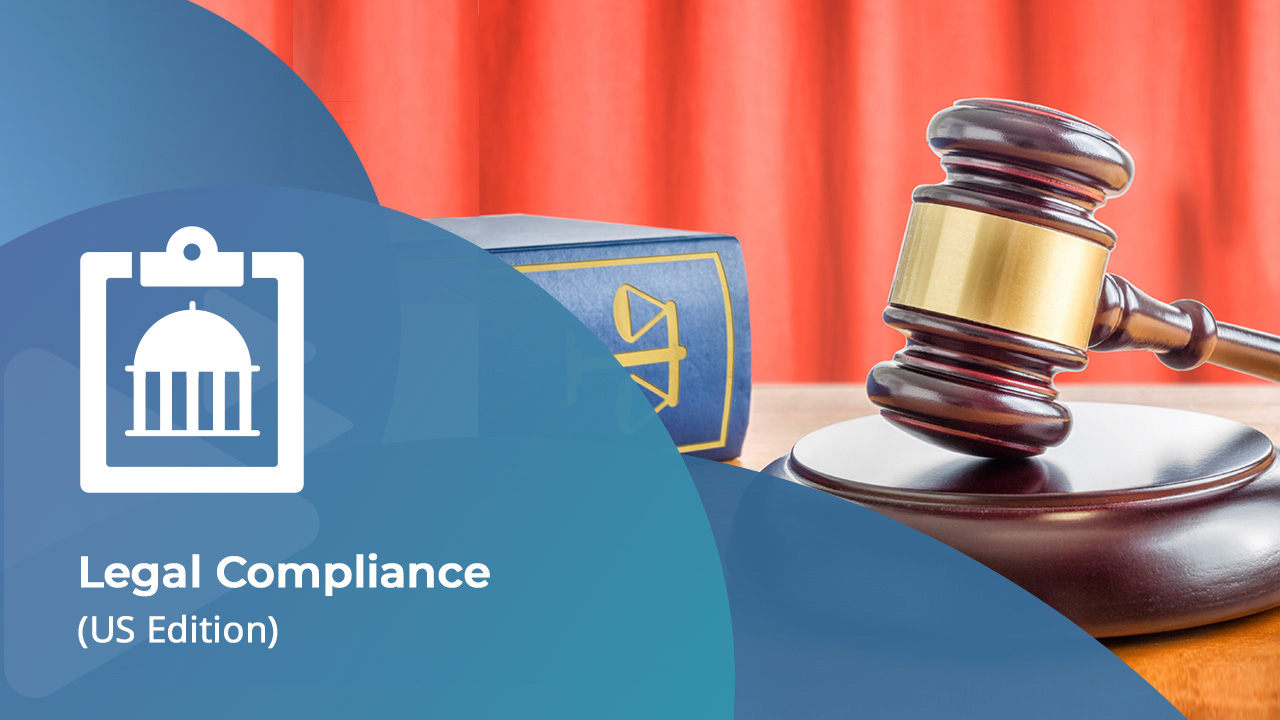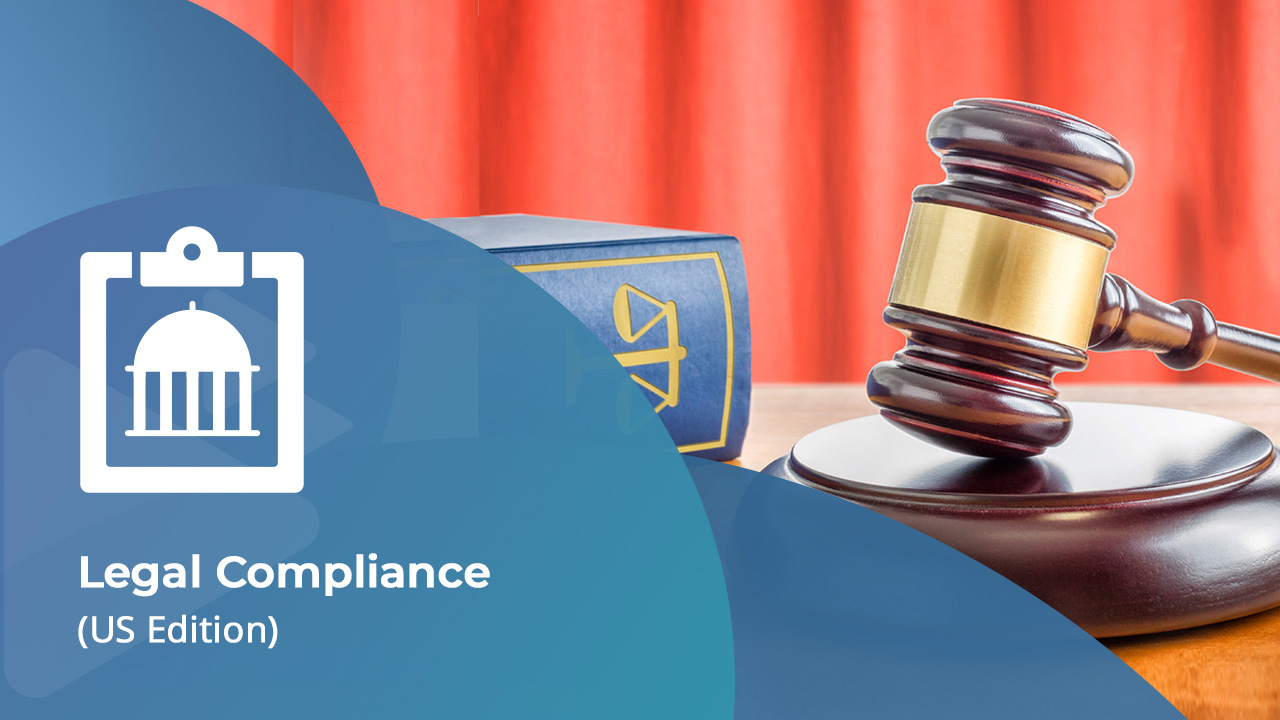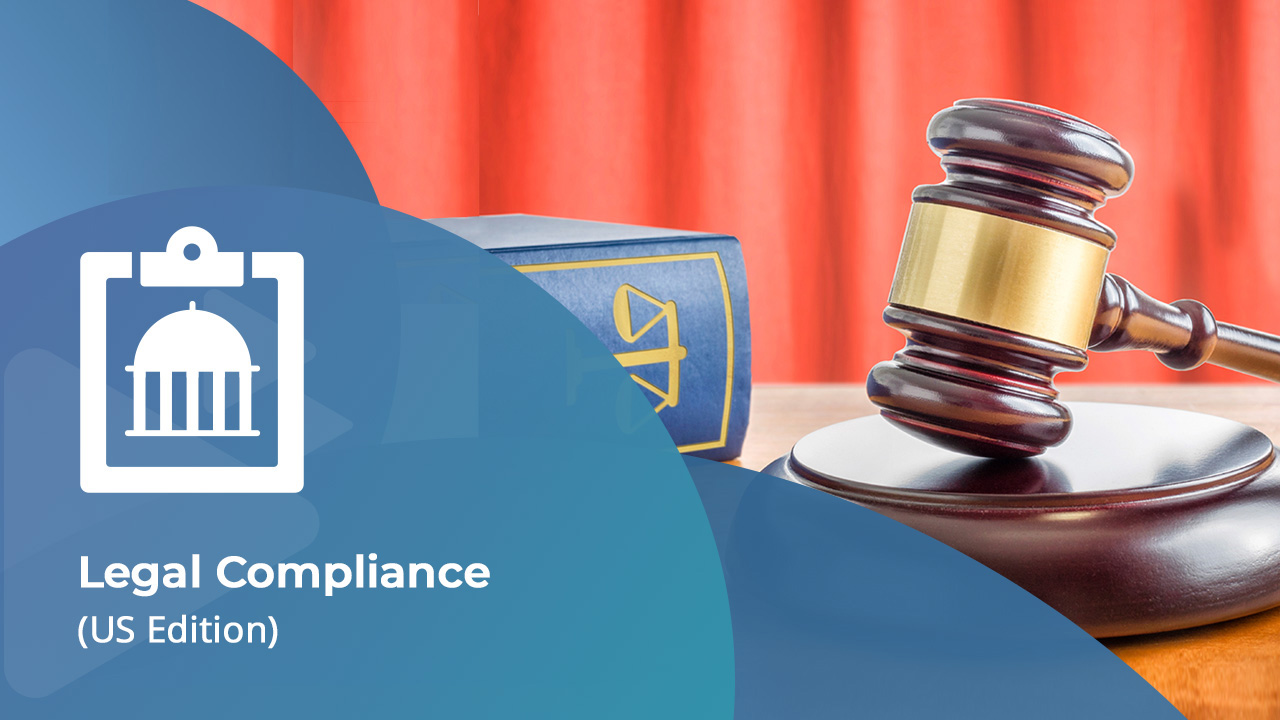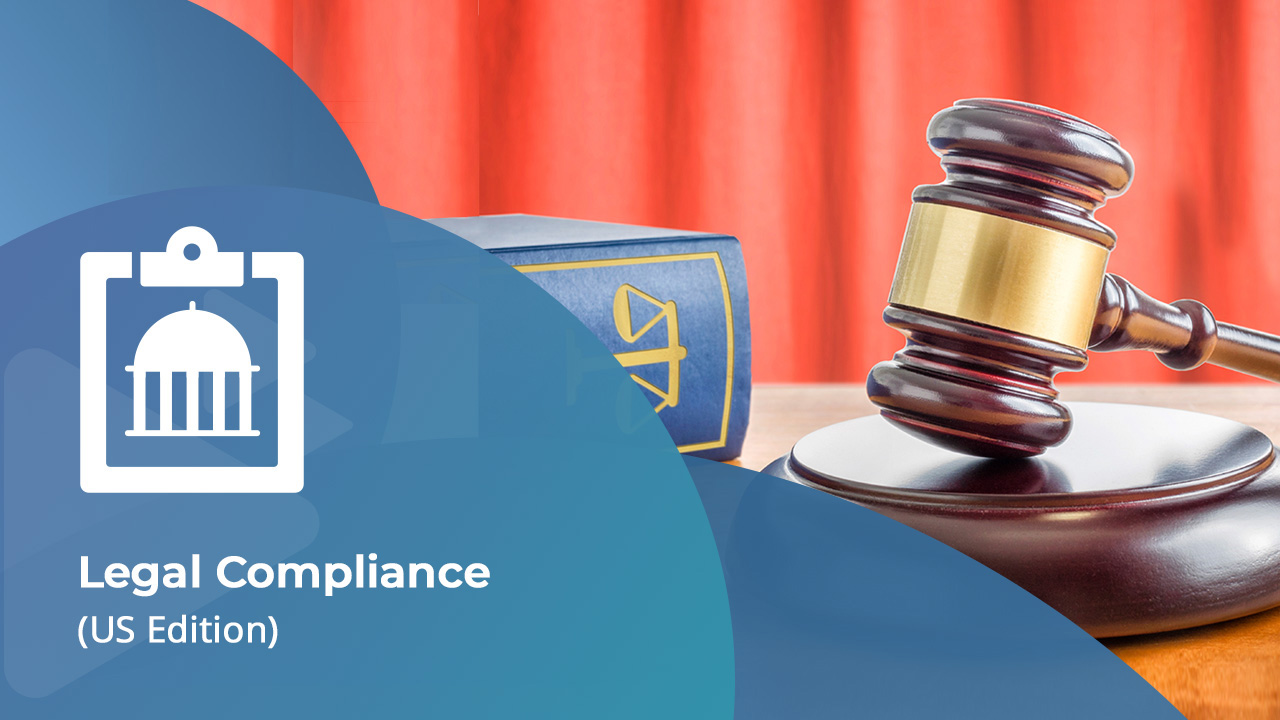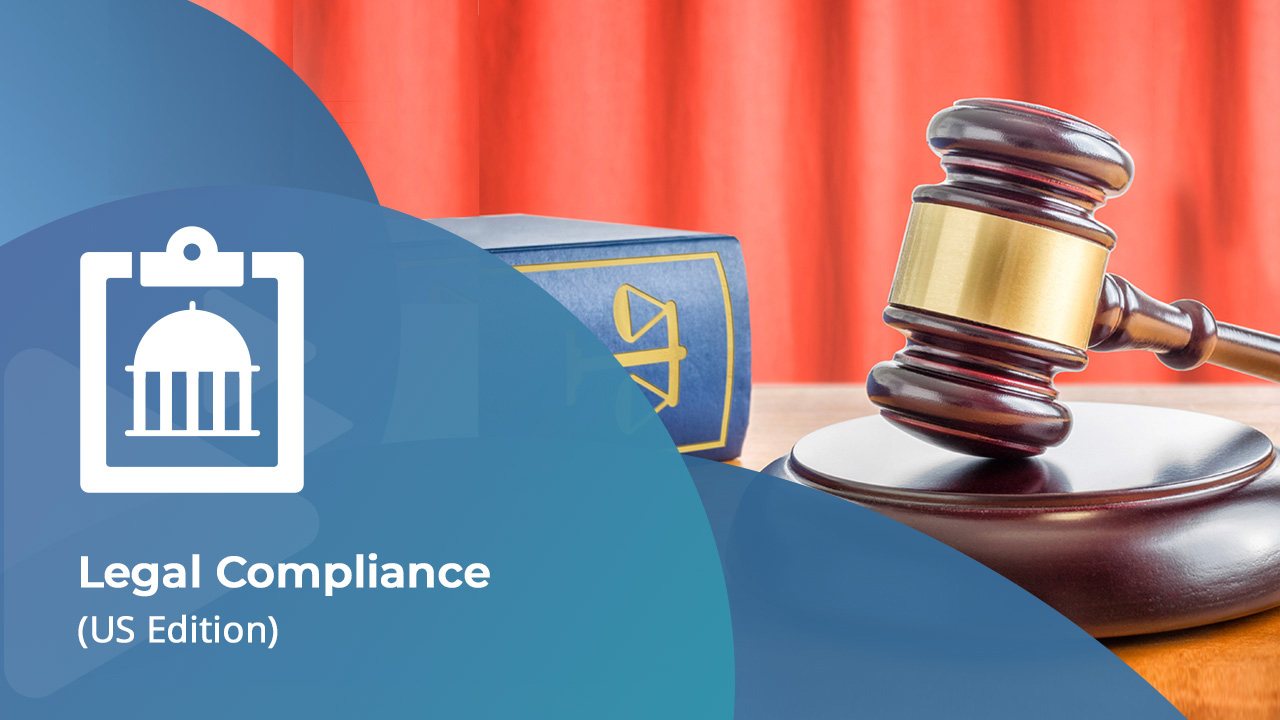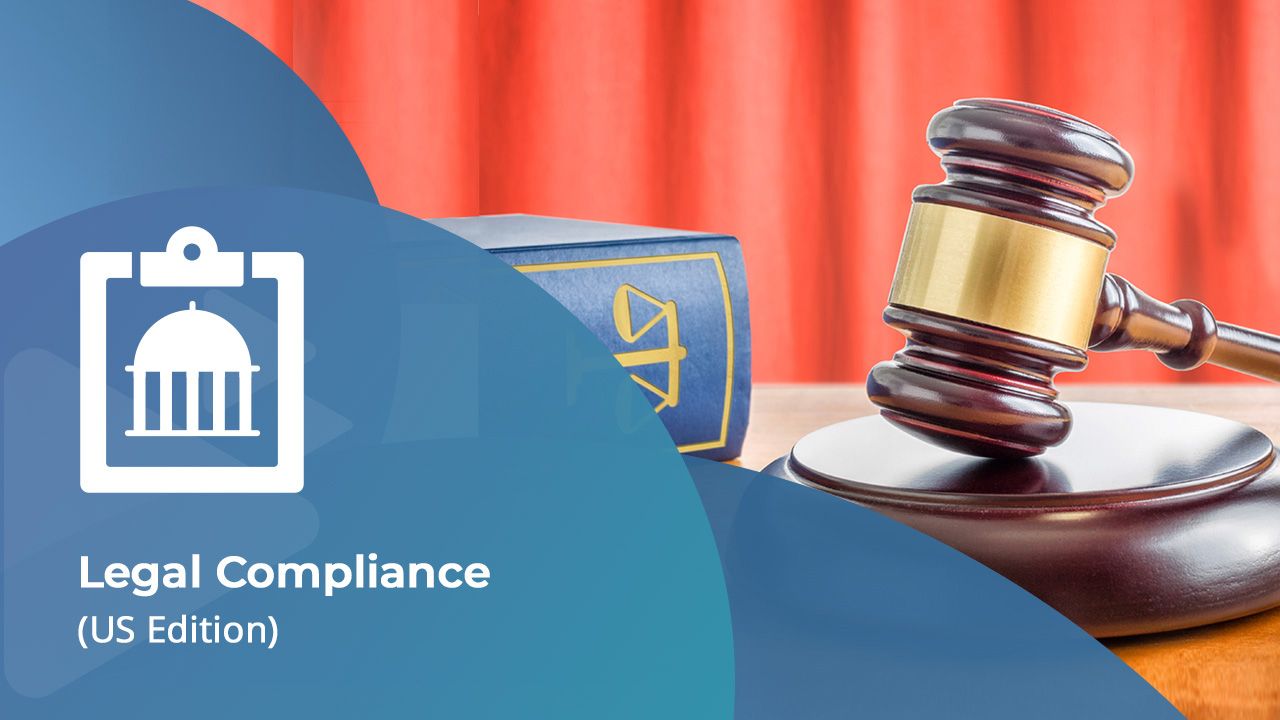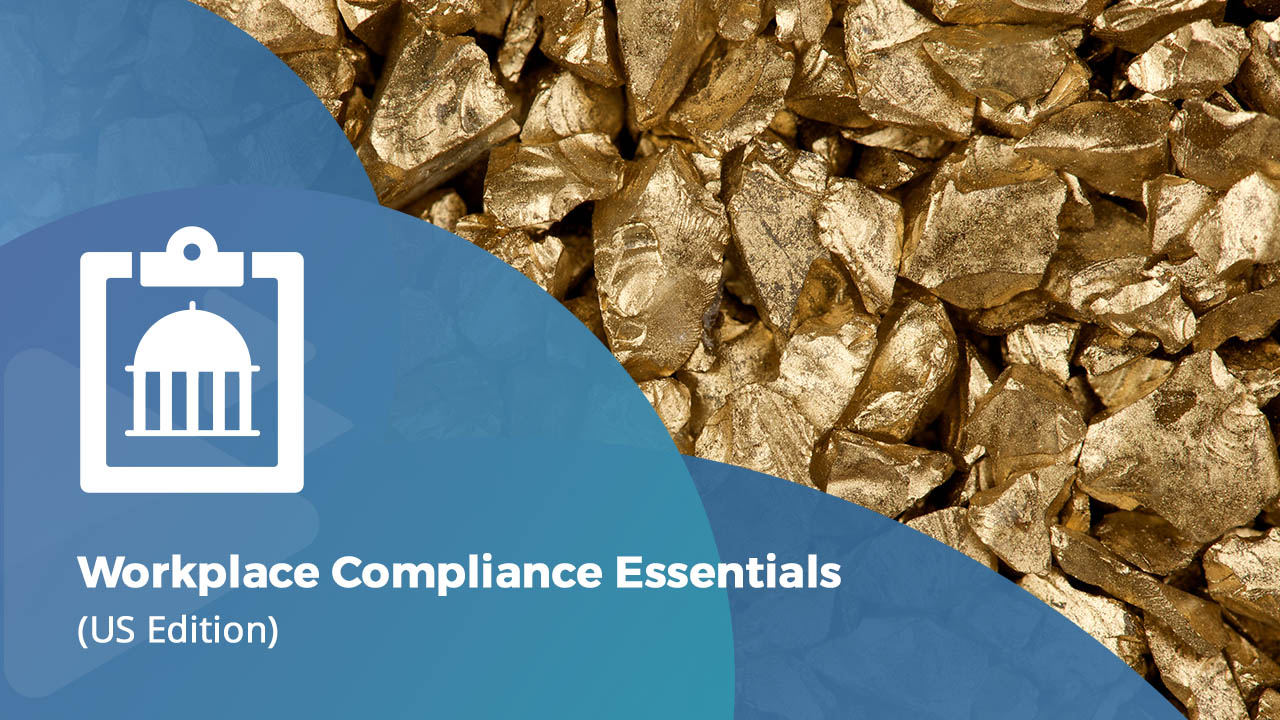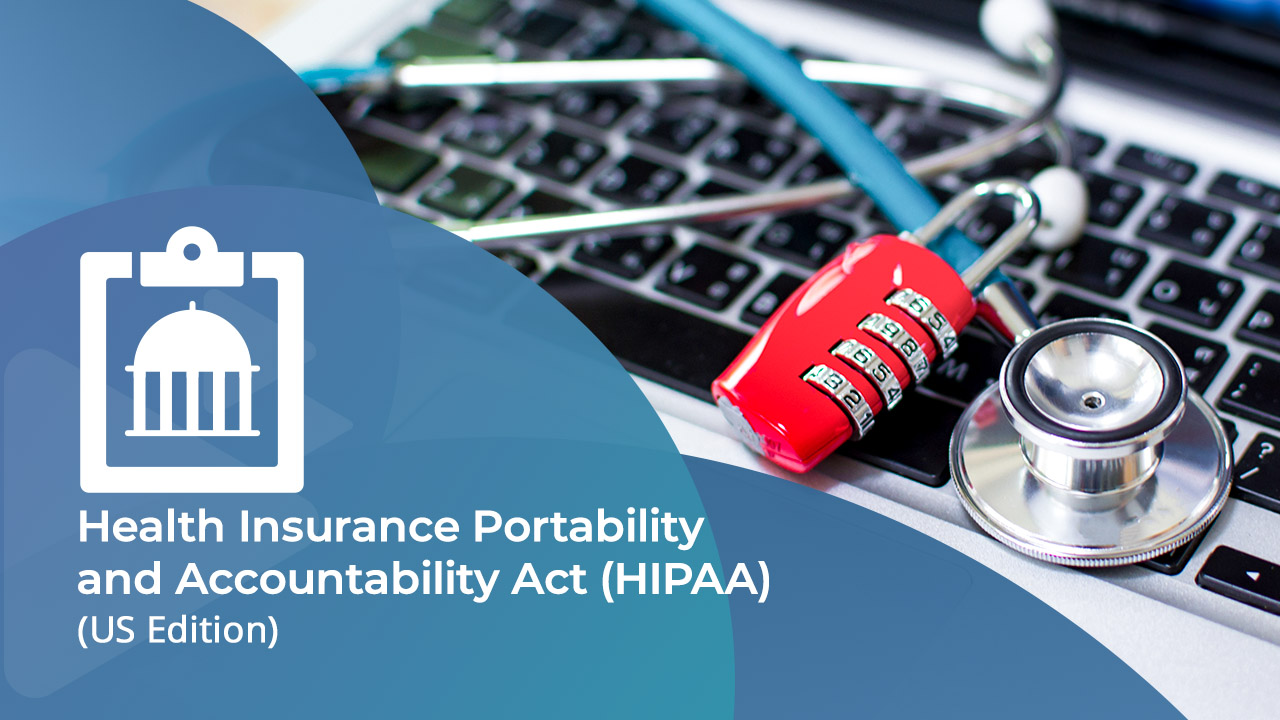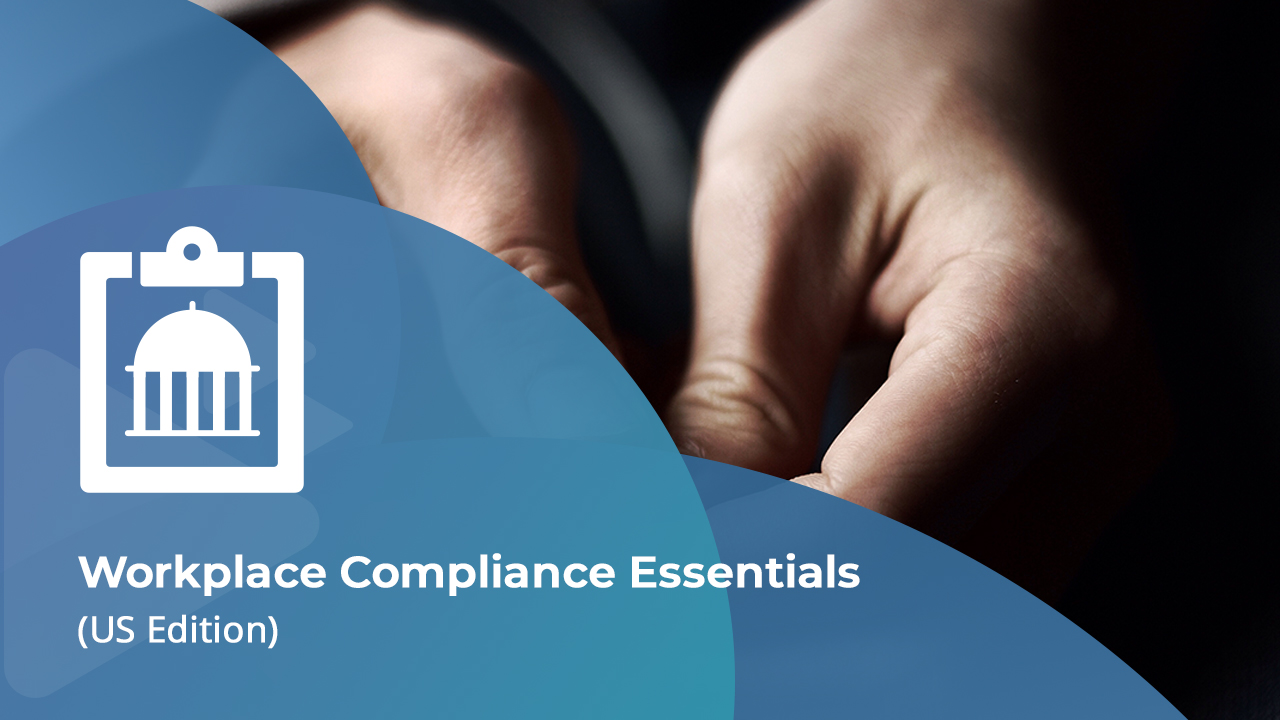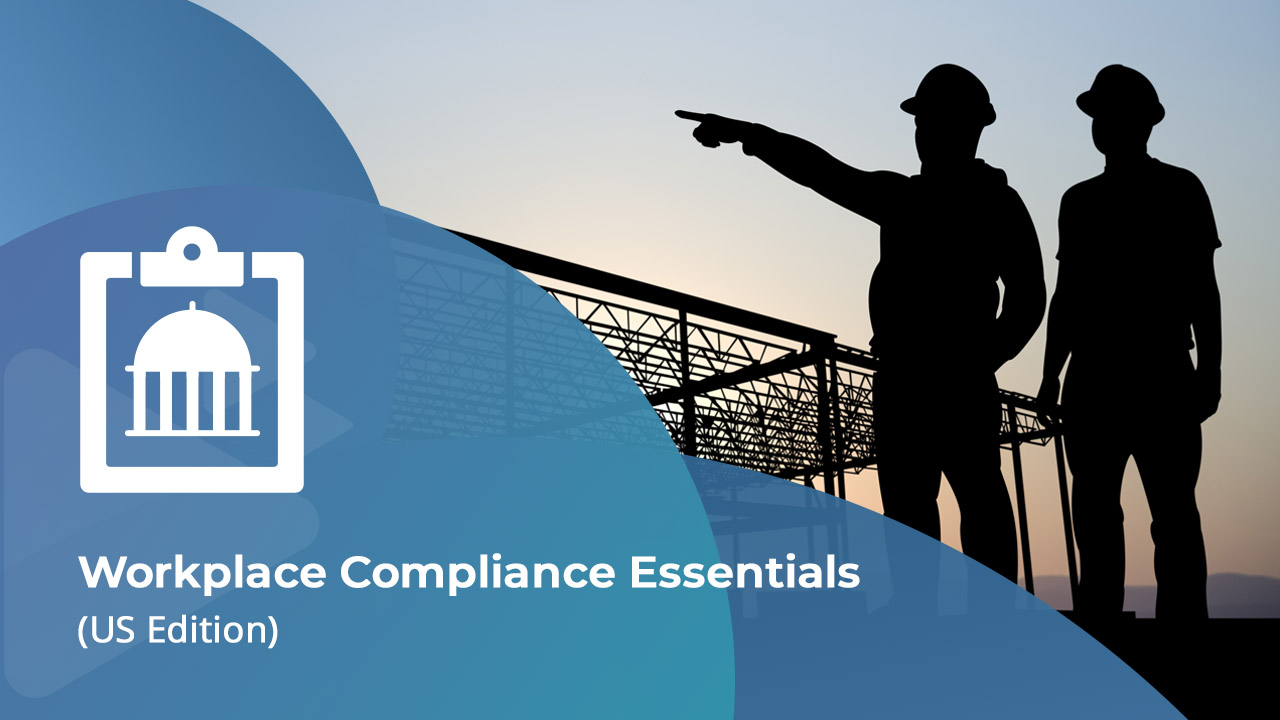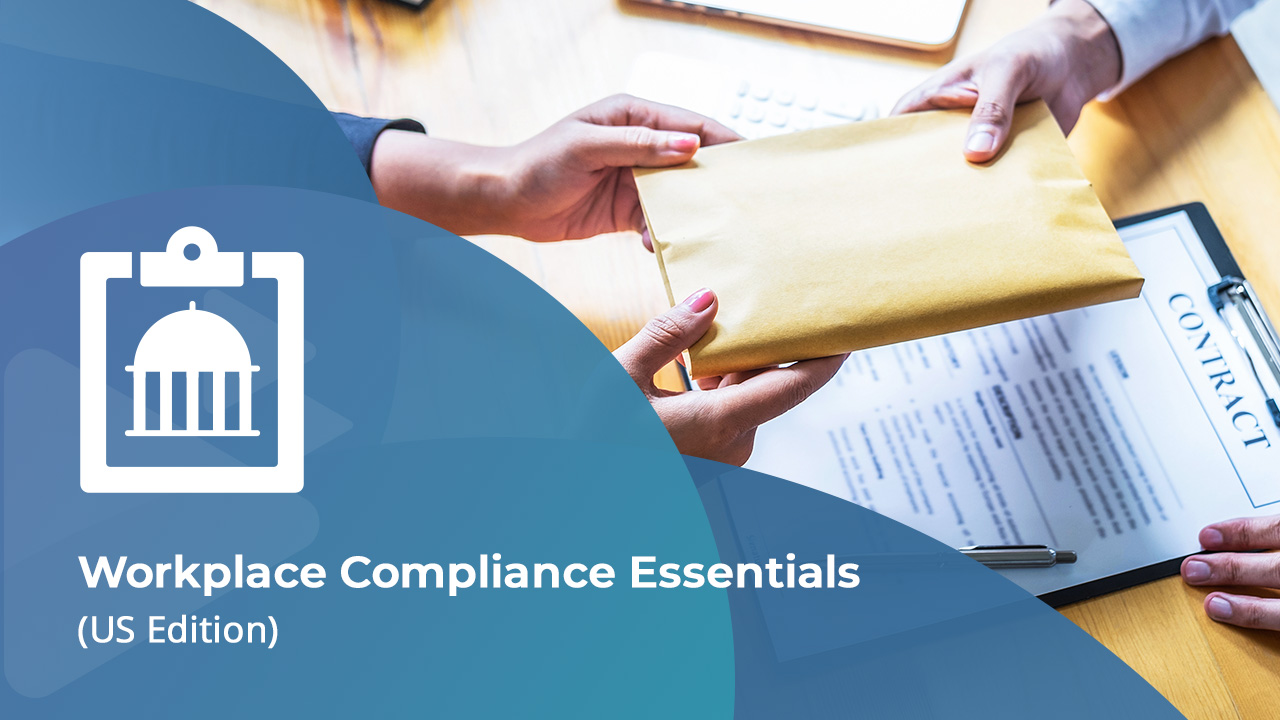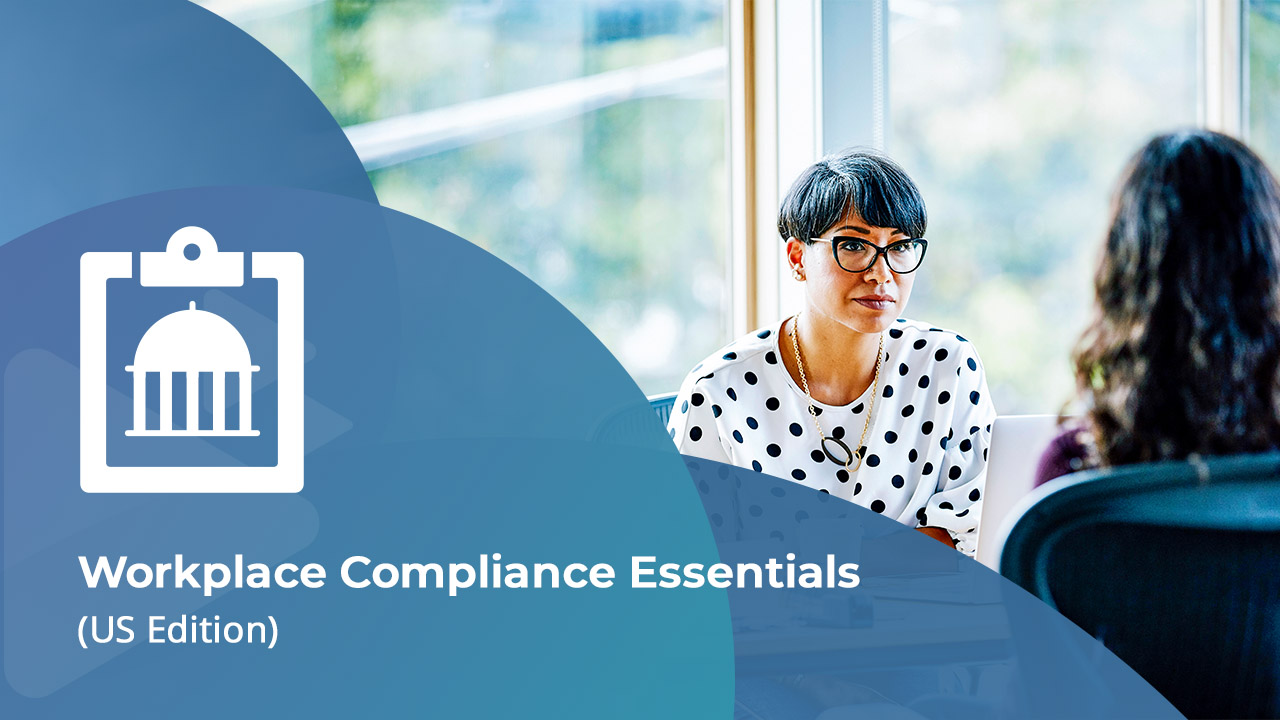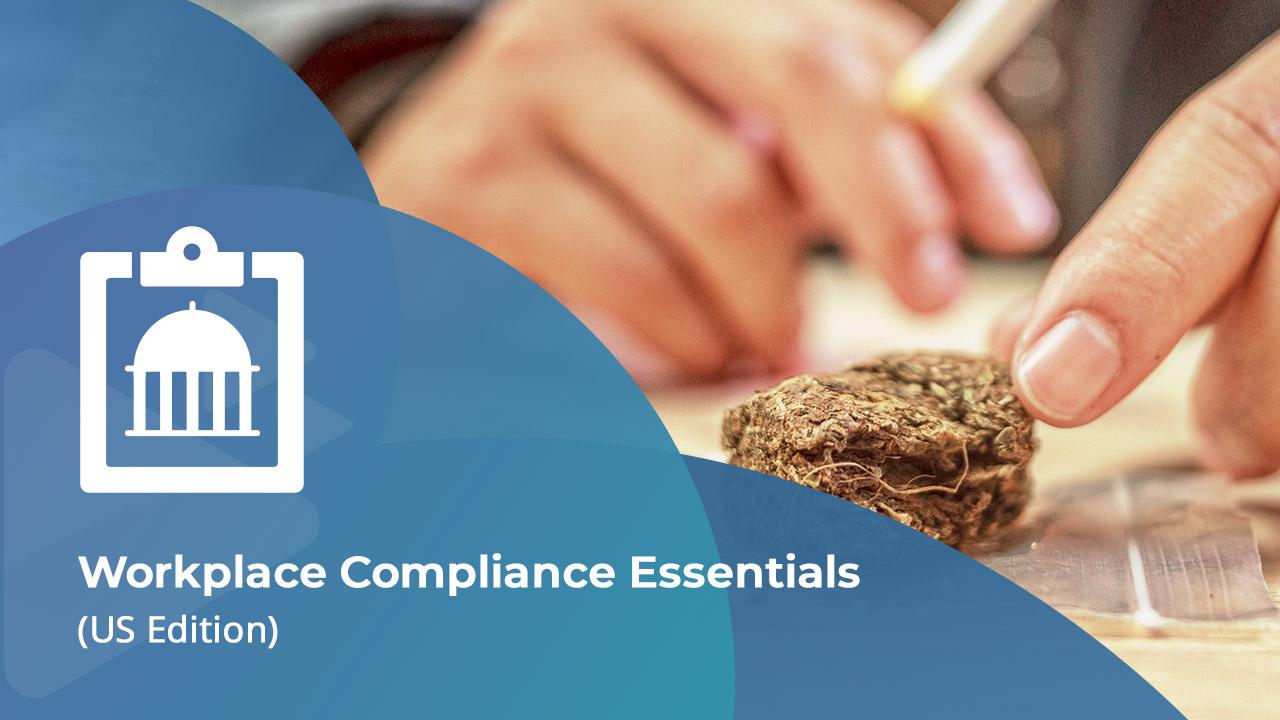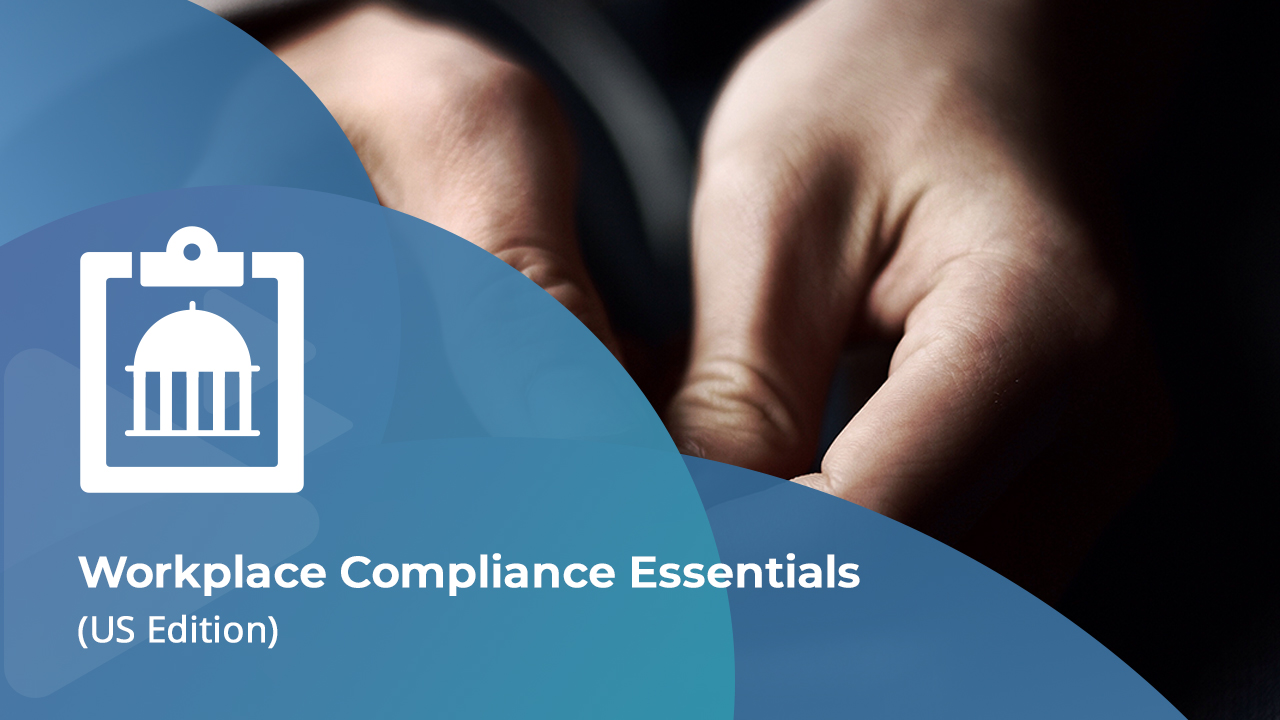Courses for US Workplace Compliance Training
- 95 Courses | 28h 55m 43s
COURSES INCLUDED
Compliance Course
A Manager's Guide to Discipline and DocumentationCompliance Course
ADA and Mental Health in the WorkplaceCompliance Course
Affirmative Action for Federal ContractorsCompliance Course
Americans with Disabilities Act: An Overview for ManagersCompliance Course
Bridging the Diversity GapCompliance Course
Bullying and Hazing on CampusCompliance Course
California Consumer Privacy Law - CCPA & CPRACompliance Course
Code of Conduct AwarenessCompliance Course
Colorado Privacy ActCompliance Course
Commercial Insider Threat AwarenessCompliance Course
Compliance Brief: New Limitations on Severance AgreementsCompliance Course
Compliance Brief: Race and Color Discrimination in the WorkplaceCompliance Course
Compliance Brief: The Pregnant Workers Fairness Act and PUMP ActCompliance Course
COMPLIANCE EXPERT: Bullying - Not in the WorkplaceCompliance Course
COMPLIANCE EXPERT: Bullying - The Manager's RoleCompliance Course
COMPLIANCE EXPERT: Diversity - Ensuring a Diverse Applicant PoolCompliance Course
COMPLIANCE EXPERT: Diversity - Its Value in the WorkplaceCompliance Course
COMPLIANCE EXPERT: Diversity - Overcoming BarriersCompliance Course
COMPLIANCE EXPERT: Export Compliance - The Decision TreeCompliance Course
COMPLIANCE EXPERT: Export Compliance - What's the Risk?Compliance Course
COMPLIANCE EXPERT: Import Compliance - Country of OriginCompliance Course
COMPLIANCE EXPERT: Import Compliance - Product ClassificationCompliance Course
COMPLIANCE EXPERT: IT Security - PhishingCompliance Course
COMPLIANCE EXPERT: IT Security - Safeguarding Mobile DevicesCompliance Course
COMPLIANCE EXPERT: Privacy & Information Security - ExamplesCompliance Course
COMPLIANCE EXPERT: Privacy & Information Security - Examples (UK)Compliance Course
COMPLIANCE EXPERT: Privacy & Information Security - The BasicsCompliance Course
COMPLIANCE EXPERT: Privacy & Information Security - The Basics (UK)Compliance Course
COMPLIANCE IMPACT: Antitrust – Rigging the BidCompliance Course
COMPLIANCE IMPACT: Antitrust – Trade Association MeetingCompliance Course
COMPLIANCE IMPACT: Bribery – The High Commission Red FlagCompliance Course
COMPLIANCE IMPACT: Bribery – The ShipmentCompliance Course
COMPLIANCE IMPACT: Business Ethics – Adjusting the FiguresCompliance Course
COMPLIANCE IMPACT: Conflict of Interest – Just Helping a FriendCompliance Course
COMPLIANCE IMPACT: Information Security – The Break-InCompliance Course
COMPLIANCE IMPACT: Insider Dealing - The MemoCompliance Course
COMPLIANCE IMPACT: Insider Dealing – The Tipping PointCompliance Course
COMPLIANCE IMPACT: PCI – Verifying the TransactionCompliance Course
COMPLIANCE IMPACT: Political Activities – Keep It PersonalCompliance Course
COMPLIANCE IMPACT: Reasonable Accommodation – The AskCompliance Course
COMPLIANCE IMPACT: Reporting Misconduct – Trust Your InstinctsCompliance Course
COMPLIANCE IMPACT: Respectful Workplace – One Bad AppleCompliance Course
COMPLIANCE IMPACT: Respectful Workplace – Reuben's StoryCompliance Course
COMPLIANCE IMPACT: Respectful Workplace – The BullyCompliance Course
COMPLIANCE IMPACT: Social Media - Blogger Gone BadCompliance Course
COMPLIANCE IMPACT: Using the Internet – Beware the ShareCompliance Course
COMPLIANCE IMPACT: Wage and Hour - Working Off the ClockCompliance Course
COMPLIANCE IMPACT: Workplace Violence – The Warning SignsCompliance Course
Conflict MineralsCompliance Course
Controlled Unclassified InformationCompliance Course
EEO and Lawful HiringCompliance Course
Financial IntegrityCompliance Course
FMLA Leave and More: An Overview of Legally Protected LeaveCompliance Course
Foreign Corrupt Practices Act (FCPA)Compliance Course
HIPAA – Privacy Rule for Business AssociatesCompliance Course
HIPAA - Privacy Rule for Covered EntitiesCompliance Course
HIPAA - Security Rule for Business AssociatesCompliance Course
HIPAA - Security Rule for Covered EntitiesCompliance Course
HIPAA for Non-Medical EmployersCompliance Course
HIPAA Privacy EssentialsCompliance Course
Human Trafficking AwarenessCompliance Course
Human Trafficking Awareness for Employees of Federal ContractorsCompliance Course
I-9 Compliance: Verifying Employment Eligibility of US and Non-US CitizensCompliance Course
Improper Business Practices in Government ContractingCompliance Course
Independent Contractors and Temporary EmployeesCompliance Course
Insider TradingCompliance Course
Overcoming Unconscious Bias in the WorkplaceCompliance Course
Overcoming Your Own Unconscious BiasesCompliance Course
Integrity in the WorkplaceCompliance Course
Intellectual Property OverviewCompliance Course
Interviewing: Doing it RightCompliance Course
Preventing Bullying and ViolenceCompliance Course
Preventing Fraud and AbuseCompliance Course
Preventing Identity TheftCompliance Course
Privacy Training for Federal ContractorsCompliance Course
Procurement IntegrityCompliance Course
Promoting a Substance-free WorkplaceCompliance Course
Promoting Respect in the Workplace for EmployeesCompliance Course
Promoting Respect in the Workplace for ManagersCompliance Course
Record RetentionCompliance Course
Rightful Employment TerminationCompliance Course
Security Awareness for End UsersCompliance Course
Slips, Trips, and Falls 2.0Compliance Course
Supply Chain TransparencyCompliance Course
Understanding Unconscious BiasCompliance Course
The False Claims ActCompliance Course
Time Charging for Federal ContractorsCompliance Course
Truthful Cost or Pricing Data ActCompliance Course
Union AwarenessCompliance Course
US AntitrustCompliance Course
US Export ControlsCompliance Course
Virginia Consumer Data Protection ActCompliance Course
Wage & Hour for EmployeesCompliance Course
Your Role in Workplace DiversityCompliance Course
Wage & Hour for Managers










